
Nicole Krempasky
Jul 11, 2023
Often times, students wonder what the point of writing assignments is, particularly if they don’t have plans to continue onto careers or college programs that are focused on writing. According to Penn Foster English instructor Selina Rush, writing assignments are geared towards college and career readiness. Writing will factor into any type of degree or job you decide to pursue, and features in many college courses. This means you’ll need strong writing skills to create a stand-out resume when applying for work.
Perhaps most important, though, is the fact that writing assignments help you to think critically and learn to research, as well as helping you to develop communication skills. They are good practice for learning how to express ideas by organizing thoughts, developing points, and making connections between ideas.
Wondering what your Penn Foster writing assignments will be like? Rush explains that it all depends on the particular course and when a student enrolled.
“When it comes to the written assignments, there are different ones depending on when the student enrolled. We have some that are just question answer exam—they ask you a question and you give your answer—and then we have some that are essay related. You’re writing an introduction, you’re writing body paragraphs, and you’re writing a conclusion. Some of them are more personal, where you’re writing about personal experiences, personal knowledge, and you don’t have to do any sort of research. But then we also have some of our courses where you write a research paper or an argument paper. The goal is to really find something that you’re passionate about. We’ve made the exams in a way that allows the student to get excited about it. When they’re in a traditional class, they don’t always get that option.”
The most common types of essays you’ll come across in high school are:
Persuasive essays are used to convince the reader of something in an informal, personal way.
Descriptive essays are meant to create a detailed understanding of something by using descriptive language. It can be anything from an object to a person, an emotion, an experience, etc.
Expository essays are meant to explain concepts, ideas, or facts. While they can be similar in idea to a persuasive essay, expository essays utilize evidence and research to lay out an idea in a more formal, matter-of-fact manner.
Narrative essays are also meant to tell a story; however, they are told often from a personal, first-person perspective based upon real experiences.
Regardless of the assignment, Rush also stresses that there is no need to panic, as writing assignments are not the end of the world. “We are here to help you … I mean, I love talking to students. Do not be afraid to ask for help.”
Though each essay assignment will be different when it comes to topic or subject, there are a few basic rules to follow to ensure you have a quality essay.
Knowing what you are supposed to write, or why you’re writing, is the first step to getting yourself in the right frame of mind to begin your task.
Researching your topic is extremely important, especially if you are writing an expository, persuasive, and even descriptive essay. This will help you formulate ideas and can even help you get excited or more interested in the assignment.
After researching and learning more about your topic, you’ll have a better idea of what you want to write about and why. If you are writing a persuasive essay, keep this sentence clear and direct.
Before you begin writing, it can help to form an outline. Outlines can help you organize your thoughts and break down the assignment into smaller, more digestible tasks. In addition to making writing less overwhelming, it can also help you format your essay so one idea flows more smoothly into the next.
Other key tips to help you write a good essay include starting each paragraph with a topic sentence (think of this like a mini thesis), writing in the same tense throughout the paper, proofreading, and (properly) citing sources if necessary.
Perhaps most importantly, Rush advises writing with honesty. “If it's something that's honest and it's true … if it comes from you and it's something you're passionate about or interested in, that makes it 10 times easier, because then you're just talking to us.”
Writing a good essay starts with planning. While some experienced writers may tell you that they sit down at their computer and the words just flow from their fingertips (because they might not even realize they are still pre-planning their work mentally), it’s important to know how to map out your essay before getting started. As a student, pre-writing steps not only help you organize your thoughts but also help you learn about all the small parts that come together to make a great essay.
So, when you get to your first course that requires an essay, start with these steps before you write your first paragraph.
What are you writing about? You don’t have to get super specific yet but figuring out what your essay will be about in general is step number one. For example, if you were writing this blog, the topic could be simply stated as: The topic of this blog is to give advice on writing a good essay.
Who is reading your essay? Who do you want to speak to or convince through your writing? Knowing who you’re writing for helps you decide the tone of the essay, what vocabulary to use, and even what information to include.
Consider the point of your essay, outside of your having to write it for a grade in school. What are you trying to accomplish? As an example, let’s go back to the idea that you’re writing this blog. The topic of the blog is to give readers advice on writing a good essay. The audience you’re writing to is mostly students, or readers thinking of becoming students. The purpose, then, is to help students understand how they can write a good essay.
As you’re getting into the habit of pre-writing, jot down your answers to each of these three things before diving into an essay so you’re focused on what you want to accomplish.
So you’ve done a bit of pre-writing and know your topic, audience, and the purpose of your essay. Awesome! It’s time to sit down and write that essay, right? Not so fast. The next step in the writing process — especially for students — is creating an outline of your essay. When you’re writing a paper for school, you can generally think of an outline as having five parts. These five parts can be translated into five separate paragraphs, although depending on your topic, you may find yourself writing more. The five parts of your essay include:
This is the paragraph where you open your essay, pull in the reader, and share your thesis statement. A thesis statement is one sentence that tells the reader your main idea and makes a claim. The rest of your essay follows up on this claim and supports your idea.
Let’s go back to the example of writing this blog. The reader needs to understand the process of writing but also why they should take this seemingly longer path to completing their essay. The best way to help the reader understand the value of the process is to use supporting data to show them that this is the best way. You might add in quotes from authorities on the topic or present data on how this process reduces the need for revisions. In the paragraph following your introduction, you need to support your claims with evidence. This same support will happen in the second and third paragraphs.
In your conclusion, you want to wrap up your essay. That can include repeating your main idea and also introducing a last and final piece of evidence that supports that idea.
By drafting an outline of your essay before writing it, you’re creating a map that you can follow even if you get a bit of writer’s block!
You’ve finished writing your essay and it’s time to upload and submit it to be graded. But before you do, have you read over your work at least once or twice? Proofreading is an essential step to any writing you do, from emails to research papers. You may feel confident that spell check is going to catch any mistakes or typos you make, the tool will alert you to many mistakes, but some slip through. Spell check can also miss grammar mistakes, and you may not realize you forgot a sentence or two that connects one idea to another.
When you’re done writing your first draft, take a break and walk away from your essay. If you immediately jump into proofreading, you may miss a thing or two yourself because you’re still close to what you just wrote. Whether you leave for an hour or a day, when you come back to your essay, you’ll be able to look it over with fresh eyes.
If you’re able to, have a friend or family member look over your essay after you made changes. They can catch anything missing or point out things they don’t understand that you may want to explain more.
Another great resource? The Penn Foster’s Writer’s Block through the digital Learning Resource Center! The Writer’s Block offers advice and tips on writing a great essay, a perfect paragraph, and how to cite your sources. You’ll also find links that can help you with different struggles you may encounter, such as how to begin your research, how to avoid accidentally plagiarizing something, and more!
Read more: How to Use Penn Foster Resources to Write a Great Essay
If you’re looking for an alternative to Grammarly, ProWritingAid is the way to go. In addition to grammar and spellchecking, ProWritingAid also offers tips and help regarding structure, dialogue, repeated words, structure, and more. It offers a custom style guide, articles, and quizzes so you can better understand why you are making changes. While there is a free option available, to access all the tools, you will need to purchase the premium feature at roughly $70 per year.
Learn more: Must Have Apps for High School Students
Sometimes even the best writers get stuck. If this happens to you, it’s ok! First, take a step back. If you’re feeling overwhelmed, you won’t be able to concentrate on writing something that makes sense, flows, and has all the points you want to focus on.
After you collect yourself, think about what the assignment is. High school English teacher, Shawn Cherinchak, advises students to go slowly and take their time. “Read the directions carefully. Read them slowly and carefully, because if you skip over something, you’re probably either not going to get that great of a grade or the paper will be returned to you.”
Once you have a full understanding of the directions, make an outline. An outline can help guide you on the structure of the paper, highlighting the points you want make and the ideas you want to cover. From there, it’s a little bit easier to “fill in the blanks”, which are the detailed parts of those ideas.
Most importantly, if you feel like you’re really struggling, Cherinchak wants you to know that help is available. “If students could call us, they could e-mail US, chat with us, send us a text … And a lot of times even non-English instructors can answer their questions if they’re general. But Selena and I are the English instructors and we're more than happy to help anyone who reaches out to us.”
Find out more: What to Do When You Need Study Help
If you’re still worried that you will never be able to write a good essay, remember this: the more you do it, the more you learn. Following pre-writing steps, building an outline, and proofreading your essay as much as possible before submitting it can make a big difference. Not only will you become more familiar with the writing process, but you’ll also start to notice how you get better with each draft. And if you’re still unsure of your writing skills, the benefit of taking courses with Penn Foster is that you can go at your own pace. There’s no hard deadline to meet so if it takes you a week or four to write your essay, that’s okay! You have the time to make your essay what you want it to be before submitting it through your student portal.

10 Skilled Trades Jobs In Demand for 2024

Des Sinkevich
Jan 05, 2023

Which Medical Coding & Billing Certification Exam Should You Take – the CBCS or CPC?
Penn Foster
Sep 27, 2022

Going Back to School as an Adult (FAQs)
Jun 09, 2022
11 min read

Performance Excellence: What Is Quality? Case Study
- To find inspiration for your paper and overcome writer’s block
- As a source of information (ensure proper referencing)
- As a template for you assignment
The article by Hoyer and Hoyer explores the essence of quality focusing on the eight prominent gurus’ views. Pointing out that quality assurance tools might vary with time, authors emphasize that it aims at performance excellence.
First, the authors reflect Crosby’s definition that refers to the accordance of all the measured characteristics to the specified criteria. At that, the requirements should be stated clearly and specifically regarding numerical indicators. Crosby’s theory likely suggests only two levels of quality including acceptable and unacceptable ones. Second, Deming’s definition operates with the customers’ satisfaction.
According to his theory, quality is multidimensional as it cannot be determined by one criterion. On the contrary to Crosby, Deming claims that several quality levels directly depend on customers’ requirements. Third, Feigenbaum’s definition is similar to those of Deming regarding the customers’ satisfaction. In particular, quality, states Feigenbaum, should be evaluated comprehensively (Hoyer and Hoyer 56). Also, quality is dynamic as it depends on clients’ changing expectations. Feigenbaum supposes to transform the latter into measurable quality characteristics.
Moreover, Ishikawa defines quality as the changing needs of customers. At that, he states that quality should be ensured on all levels of an organization. Ishikawa considers that quality is directly related to price. For example, if a high-quality product is overpriced, it cannot satisfy customers. In turn, Juran’s definition focuses on both customers’ requirements and conformance to specification criteria. However, it is quite difficult to combine these features in one definition.
Therefore, Juran uses a new term of fitness for use that refers to two identified characteristics. It should be noted that Hoyer and Hoyer do not consider this theory consistent (57). The authors of the article state that the definition of the following guru is more interesting for academics rather than for average readers. Pirsig identifies quality as a modern art avoiding precise terms. At the same time, his work is full of technical terms that cause multiple contradictions. The latter is a challenge for a person who strives to ensure the high quality of a product. Pirsig operates with such notions as excellence, goodness, and worth. From the above explanation, it becomes clear that Pirsig’s definition is different from others due to the outstanding vision of quality nature.
Furthermore, Shewhart’s definition is based on the two components of quality that are as follows: subjective (customers’ needs) and objective (product’s characteristics). The scholar distinguishes the four characteristics of quality: cost, esteem, use, and exchange. Likewise, Ishikawa values an adequate price believing that it is connected with quality. Also, Shewhart stresses that statistics is a useful tool to understand the customers’ needs and transform them into measurable indicators.
The last idea goes in line with those expressed by Feigenbaum. Taguchi identifies quality through societal quality and societal loss functions. He claims that quality is a loss to society, and “loss caused by the product’s or service’s intrinsic function does not count toward the loss to society” (Hoyer and Hoyer 61). To achieve quality, it is essential to constantly strive to take into account the measurable characteristics of a product.
Finally, the authors state that Shewhart’s definition is the most appropriate in the context of intellectual and practical perspectives. After reading the article, it becomes evident that there are two levels of quality including correspondence of a product to measurable specification criteria (Crosby and Taguchi) and customers’ satisfaction (Feigenbaum, Deming, Ishikawa, and Pirsig). Juran and Shewhart attempt to satisfy both of the mentioned levels.
Works Cited
Hoyer, Robert W., and Brooke Y. Hoyer. “What Is Quality?” Quality Progress 34.7 (2011): 52-62. Print.
- Quality Management for Domestic and Global Competition
- Deming and Juran as Total Quality Management Gurus
- Joseph M. Juran: Cultural Impact Analysis
- Cultural Values That Matter to Business Process Management
- Fishbone Diagram in Project Management
- Synchronous and Just-In-Time Manufacturing and Planning
- "Why Things Catch On?" a Book by Jonah Berger
- Plan–Do–Check–Act Cycle in Manufacturing and Services
- Chicago (A-D)
- Chicago (N-B)
IvyPanda. (2020, October 13). Performance Excellence: What Is Quality? https://ivypanda.com/essays/what-is-quality/
"Performance Excellence: What Is Quality?" IvyPanda , 13 Oct. 2020, ivypanda.com/essays/what-is-quality/.
IvyPanda . (2020) 'Performance Excellence: What Is Quality'. 13 October.
IvyPanda . 2020. "Performance Excellence: What Is Quality?" October 13, 2020. https://ivypanda.com/essays/what-is-quality/.
1. IvyPanda . "Performance Excellence: What Is Quality?" October 13, 2020. https://ivypanda.com/essays/what-is-quality/.
Bibliography
IvyPanda . "Performance Excellence: What Is Quality?" October 13, 2020. https://ivypanda.com/essays/what-is-quality/.

Eight Characteristics of Good Writing
by Melissa Donovan | Dec 2, 2021 | Better Writing | 31 comments

What’s the difference between bad and good writing?
How important is it for a writer to be able to discern the difference between good writing and bad writing?
Pretty important, if you ask me.
I know some writers aren’t concerned with quality. In today’s do-it-yourself and get-it-done-fast world, quality plays second fiddle to quantity. Who cares if your books are full of typos, bad grammar, and poor logic as long as you have published lots and made a bunch of money?
Readers care. Agents, publishers, and reviewers also care. And while you can still make a million with a bunch of badly written books and a stellar marketing scheme, your work won’t be taken seriously. Also (and this is critical), while it’s possible to make it big by writing badly, it’s not likely. It happens, but it doesn’t happen often. The better your writing, the better your chances for securing a readership and building a career.
The Characteristics of Good Writing
So, what constitutes good writing? Opinions on the matter vary widely. There will be different traits that make good fiction versus good poetry or good nonfiction. However, we can cull together a general list of the characteristics of good writing (in no particular order):
- Clarity and focus: In good writing, everything makes sense and readers don’t get lost or have to reread passages to figure out what’s going on. Focused writing sticks with the plot or core idea without running off on too many tangents.
- Organization: A well organized piece of writing is not only clear, it’s presented in a way that is logical and aesthetically pleasing. You can tell non-linear stories or place your thesis at the end of an essay and get away with it as long as your scenes or ideas are well ordered.
- Ideas and themes: Is the topic of your paper relevant? Does your story come complete with themes? Can the reader visualize your poem? For a piece of writing to be considered well crafted, it has to contain clearly identifiable ideas and themes.
- Voice: This is what sets you apart from all other writers. It’s your unique way of stringing words together, formulating ideas, and relating scenes or images to the reader. In any piece of writing, the voice should be consistent and identifiable.
- Language (word choice): We writers can never underestimate or fail to appreciate our most valuable tools: words. Good writing includes precise and accurate word choices and well crafted sentences.
- Grammar and style: Many writers would wish this one away, but for a piece of writing to be considered good (let alone great), it has to follow the rules of grammar (and break those rules only when there’s a good reason). Style is also important in ensuring that a piece of writing is clear and consistent. Make sure you keep a grammar book and style guide handy.
- Credibility or believability: Nothing says bad writing like getting the facts wrong or misrepresenting oneself. In fiction, the story must be believable (even if it’s impossible), and in nonfiction, accurate research can make or break a writer.
- Thought-provoking or emotionally inspiring: Perhaps the most important quality of good writing is how the reader responds to it. Does she come away with a fresh perspective and new ideas? Does he close the cover with tears in his eyes or a sense of victory? How readers react to your work will fully determine your success as a writer.
I want to add an honorable mention for originality. Everything has been done before, so originality is somewhat arbitrary. However, putting old ideas together in new ways and creating remixes of the best that literature has to offer is a skill worth developing.
Why You Need to Know the Difference Between Good and Bad Writing
To write well, a writer must be able to recognize quality in a piece of writing. How can you assess or improve your own work if you can’t tell the difference between mediocre and better writing in others’ work? This is why it’s so important for writers to be dedicated readers!
Writing is also an art form and therefore subject to personal taste. Can you read a book and dislike it but acknowledge that the writing was good? Have you ever read a book and loved the story but felt that the writing was weak?
A writer should be able to articulate why a piece of writing succeeds or fails, and a writer should also be able to recognize the qualities in a piece of writing even when it doesn’t appeal to their personal taste. These skills are especially necessary when writers are reviewing or critiquing other writers’ work and when revising, editing, and proofreading their own work.
Where do you stand? Do you rate other people’s writing? Do you worry about whether your own writing is any good? Would you add or remove any characteristics of good writing from this list? Share your thoughts by leaving a comment, and keep writing.

31 Comments
I have had work published. I have even won a competition and still I lack the courage to really commit to it. It’s like I heard a character in a ‘soap’ once saying: ” If I dream of doing it I can always hold onto the dream and live on the’ I could have done it if I tried’, whereas if I go ahead and do it I just might not be ‘good’ and then everything will be gone then, dream and all ! ” Everything you say makes sense but it’s courage I now seek to acquire as well as certain’ devil may care attitude . Courage and self belief and wee bit of discipline. 2012 might just be the year ! Michelle
Michelle, I actually think it’s healthy to have dreams that we don’t fully intend on pursuing. It’s good for the imagination! A person might be interested or passionate about dozens of things and cannot possibly make careers out of them all. But courage is something else… and I don’t think anyone can give you courage. You have to find it within yourself. The first step is to decide that you are going to brave the writing career. After that, you muster up the courage. It’s there inside you, and if you really want it, you’ll find it 🙂 Good luck to you!
Good one, Michelle, and needed too.
So many blog posts on how to drum up business or write enticing posts or articles, or even how to avoid embarrassing grammatical errors (not that those are not important).
So little on just plain old good writing. Writing that is unusually good, that delights, that informs with impact,
I love the freedom an informal style of modern English. But sometimes I worry a bit that contemporary readers are being fed to many tiny sentences to appeal to an ever-diminishing attention span.
A good list you have there. Maybe I would add that I value fluency. That adroit facility of the accomplished writer who’s covered miles of (digital) paper and now can write not only accurate and clear words and sentences but also compelling and memorable prose.
Ah, fluency is definitely necessary to good writing, although I think it comes with experience, so it might only apply to older or more advanced writers. Great food for thought, Bill. Thanks!
Loved this blog post. It actually reminded me of a quote by Oscar Wilde, “There is no such thing as a moral or an immoral book. Books are well written or badly written.”
That quote could spur a debate, I’m sure! Thanks for sharing it, Michael. I’m going to give Oscar Wilde’s idea some serious consideration.
“A writer should be able to articulate why a piece of writing succeeds or fails, and a writer should also be able to recognize the qualities in a piece of writing even when it doesn’t appeal to personal taste”
I’m reading a book right now with a story line that I don’t particularly care for. Eight chapters into it, I’m not fully invested into the story. BUT, the author’s grasp of human emotion/interaction and her ability to explicate the nuances with clarity is brilliant. That fact alone keeps interested and pulls me forward.
Ah! I’ve been there too!
This is a very well written blog, and the advice is good for teaching people how to get their points across. However, my problem is not that I can’t tell good from bad; apparently I’m quite good at assessing the quality of other authors’ writing and helping them iprove it. My problem is that though I love writing and am proud of my plot lines and characters, I don’t have a way with words and I just can’t write. Does anyone have any advice on how to make things WORK once you have everything planned out, or am I doomed to the life of an author who can’t write? That sounded really dismal.
How do really know your writing is bad? If you’ve got a plot that you love, characters that are filled with layers and truth, set them free! Turn off those negative thoughts and just run with it. Write your story through to the end. If you believe in what you’ve got so far then let it lead you. You will surprise yourself. You proved with your post above that you can convey feeling, let your characters have their voice. Take a deep breath and jump/write!! Best of luck and courageous hugs!
Thanks, Beckie. Well said!
My guess is that your way with words isn’t as bad as you think. I didn’t have any trouble understanding what you wrote. However, if you want to strengthen your skills in vocabulary, word choice, and sentence structure, there are two things you can do: read as much as possible and engage with poetry. Pick up an introductory book on poetry and you’ll learn tons of techniques in this area (which you can apply to fiction and nonfiction). This one can be expensive but it’s worth every penny: Perrine’s Sound and Sense . Good luck to you!
Thank you, both you and Beckie. That’s really good advice. 🙂 I’ll try to be more positive.
Yes! Keep your chin up and stick with it.
In my estimation, for what it’s worth, you write very well. You were clear and concise. I understood the points you were trying to convey. You even allowed a bit of your personality to shine through with self deprecation. Don’t be so hard on yourself, if you wish to be a writer then you should write. I am learning that for one to write compelling characters , one must be well acquainted with the characters they are creating. I am working on fleshing out some characters who are too one dimensional. Life is not black and white. I am trying to write in between the lines in gray. Good luck with your writing.
I’ve been perusing your site all morning. I’ve found some terrific tips, some very well-thought common sense approaches to working through difficulties in writing. And as soon as I push the submit button on this I’ll be subscribing!
Though I’ve been published and produced, I find myself in an almost constant state of questioning even the most basic ability to write. On the one hand, a local critic stated “proves he can write” and “there’s a simplicity in the writing that is quite refreshing.” On the other hand, I face a writer’s group (all women) each week who continually tell me my writing is sorely lacking because there aren’t enough issues (conflicts) in any given piece and therefore the characters do not exhibit enough “emotional levels.” Facing this type of weekly demolition has made me think I need to go back to doing what I used to do (before I became unemployed!): write for my own enjoyment and forget about any further publishing.
Where can one go to determine if there is even the slightest bit of talent worth further pursuit? I don’t mean a full-on critique of a piece, but a simple “I’d give it up if I were you.” or “This [writing] shows promise, keep learning and keep writing.”
Hmmm, Paul, possibly find a few dudes for your critiques? Also, are the women published? Have good reviews themselves? Read widely in your genre? Men and women do sometimes have widely varying ideas of what makes a good story. You may be writing good, solid, plot-driven adventures (I don’t know–maybe you’re into steamy historical romance) that don’t rely on a lot of emotional nuance. I’d look for beta-readers who understand what you are trying to accomplish.
Or take the girls with a big grain of salt and use what seems to deepen your own writing while recognizing that women’s brains are different. We have bizarre and incomprehensible ideas about relationships and whatnot. I read an interesting theory from the creators of the Dramatica Pro story outlining software about how a “masculine” character (or story) is about getting from point A to Point Z while overcoming every obstacle in between whereas a feminine character (or story) is about getting everything into balance and restoring chaos to equilibrium. Both perfectly fine stories. (I prefer the masculine-type storylines myself).
Post those good reviews and read ’em every day. I have some really nice rejections that I savor whenever I’m feeling inadequate.
Thanks, Melissa!
Two of the ladies have been published but have no reviews of their work. All have complimented the basic plot lines. Their big complaint would seem to fall into the theory from Dramatica Pro you mention; they are looking for every female character to make absolute sense to them strictly within their belief structure of how the characters should/must react to a particular situation. Otherwise, they give solid line-edit critiques and they do point out the occassional hole in content.
None of them read within my genre – if I even have one, that is. I’d classify my novels as “budscapades” (you like my mash-up moniker?) – in other words the main characters are male (female characters do show up along the way) and they are definitely plot driven stories. In entering the Amazon Breakout Book Award Contest, I classified the novel as “bromantic comedy” (plenty of action for guys with a hint of romance for women).
Both your suggestions are solid. I’m sticking with the ladies but will weigh their critiques carefully before implementation and I’ll have to find some men who can show the same amount of weekly dedication to the process.
Thanks, Paul! I think that critique groups can be immensely beneficial, but I also think that each writer has to decide which feedback to apply and which to discard. Objectively, there’s good writing and bad writing, but subjectively, we all have our opinions and preferences. I guess you have to decide whether you want to step up the emotional levels in your characters and add more conflict or if you want to keep your work minimalist.
Here’s what matters: once you do publish, unless you are looking for awards and accolades, the trick is really to find your audience. And there is an audience for everything (as popular culture demonstrates). You might also take a hard look at what the others in your writing group are producing and ask whether this group is a good match to your writing style and needs. You can also ask one of the women in the group to work more closely with you to bring those emotional levels up, if you think you’d like to stretch yourself and experiment a little.
Final word of advice: do not give up on writing or publishing. Forge ahead! You might even look for a creative writing class or workshop — you’ll get a broader range of feedback.
And thank you, Melissa (not Melissa-me, Melissa-you) for putting some analysis into the question of what makes good writing. I get so frustrated with the “Good writing is subjective; it’s just what you like or don’t like,” crowd. The more you study writing, the more you begin to see the difference between good vs bad.
The difficulty, I suppose, is because writing is as complex as any other language. It’s too complex to learn by having the rules explained to us by helpful parents, “Now dear, this is a verb. It always goes after the subject. Is it time to make a poo-poo?” We learn the rules of spoken language by hearing it at a time when our brains are primed and programmed to take it in. Many people don’t start learning to read or write until after that language window is closed. Those of us who learned to read at the same time we were learning to talk have an advantage.
Yes, I’d have to agree that the younger we are when we are taught to read and write, the more naturally it comes. There is much about writing that is subjective, but I believe there is plenty that can be assessed critically and objectively: grammar, spelling, and punctuation, for starters.
i tell every mother about my baby can read…they agree and then dont get it for their child..
I have to admit, I share a lot of the insecurities that I have read in the comments here. I’m pretty young and new to the game, and I’m worried that even if I somehow finish this idea that I have (non-fiction) I wont be taken seriously given my lack of a college degree. I have this internal conflict raging in my subconscious, so much so that I’m starting to have dreams about it. Do I go ahead and share my thoughts with others or should I keep them to myself?
It doesn’t help that I have a fear of failure, I suppose. Writing is where I clarify my ideas and feelings, and I’m afraid that my work will be ripped apart by people that dislike it or dismiss my thoughts, mostly because I’ll take it as them dismantling my soul. Does anyone else feel this way?
As I’m writing this I’m slowly realizing that I think that what I need is a little encouragement from people that don’t know me. Man, writing is awesome!
Even if you have a degree, people can still rip your ideas apart. I believe strongly in the value of higher education, but I also know (for a fact) there are plenty of folks with degrees who lack common sense or good hearts. And there are plenty of bright people with good hearts and common sense who do not have degrees. Then again, if you’re that torn up about not having a degree, why not just go get one?
Having said all that, I think you can simply shift your focus. Most of the best writers in the literary canon did not have degrees. Many did not even finish high school. Of your favorite authors, how many have BAs or MAs? Do you know? Do you care? (I don’t.)
As for failure, everyone’s afraid of it. I don’t think we’re meant to eliminate the fear. It’s more a matter of moving forward even though we are afraid. I would say that if you publish a book, some people are not going to like it. That’s just the way it is. So what? Focus your attention and energy on all the people who do like it. If you work hard and write, and put it out there (and do your marketing), you’ll find your audience. Embrace them, and don’t worry so much about everybody else. Good luck to you!
never worry about what anyone says…if someone takes the time for a a scathing review instead of just chucking it in the trash, then you must have struck a chord with that person…all publicity is good publicity…people will want to find out what made this reviewer so angry/….if they are intelligent…
Writing well is the price of admission. But beyond the basics is where it gets squishy. Eudora Welty said something like “You’re only writing when you surprise yourself”. What does that mean? You write until you discover.
I don’t know–I would say you’re only writing when you’re putting words on the page. Surprises and discoveries are bonuses in the writing process for me. Maybe it’s because I write a lot of nonfiction, which isn’t full of discovery or surprise the way fiction is.
Great article. I’m going to link to it on Reddit!
i think another goal of writing is to use the fewest words possible to convey an idea…similies and metaphors fill this bill…but simple truth sticks with people especially when it is a parable for something much more meaningful.
I think that’s a good goal, although it’s not every writer’s goal. I love clear, simple language, but there are exceptions when I come across a poem or story that is dripping with rich language.
Submit a Comment Cancel reply
Your email address will not be published. Required fields are marked *
This site uses Akismet to reduce spam. Learn how your comment data is processed .

Subscribe and get The Writer’s Creed graphic e-booklet, plus a weekly digest with the latest articles on writing, as well as special offers and exclusive content.

Recent Posts
- 12 Nature-Inspired Creative Writing Prompts
- Poetry Writing Exercises to Engage the Senses
- Tips for Developing Story Writing Ideas
- Reading, Writing, and Reviewing Good Poems
- Consuming Art to Fuel Your Writing
Write on, shine on!
Pin It on Pinterest
5 Steps To Quality Essay Writing (With Examples)
Knowing how to write a good quality essay is a skill that will benefit you all your life not just in your college or university. Writing essays on different topics helps develop critical thinking and enhances your ability to observe and understand different perspectives and views. The ability to organize your ideas and thoughts can help you write not just essays but also research papers, blog post articles, business letters, company memos, and whatnot.
However, writing an essay is a strenuous and challenging task. It takes more than just your time to come up with a good-quality essay before the submission deadline. Even if you are a great writer you still need to learn a few things before you start the writing process for your essay. So, if you want to learn how to write a perfect essay in 5 easy steps then this guide is for you.
Are you feeling overburdened by loads of writing assignments and never-ending homework? Consult Essay Basics to hire our essay writing experts.
THESE ARE 5 EASY STEPS TO WRITE A PERFECT ESSAY
Step 1: determine the title and research your audience.
The first step to writing a good essay is to come up with a good essay title. If the title is pre-assigned then you can skip this step. If you are free to choose a title then you should only choose the one that interests you the most. Choose any topic you find yourself arguing for or against or any topic you have a passion for. It is not necessary that you know everything about the topic of your interest before you start writing. If you have an interest in that topic then you can easily do research about that topic without feeling any burden. If you want to write an argumentative essay then it’s best to present arguments in favor of your thesis statement rather than against it.
For example, if you are writing an essay about nature for your school assignment then you should use easy to understand words and should never add complex scientific calculations in your essay. However, if you are presenting your essay in front of Ph.D. doctors then you must add proof of your findings through references. For them, you can also use all kinds of complex calculations to support your argument.
Step 2: Brainstorm Ideas and Make an Outline
The second step is to make an outline by brainstorming about the main idea and all the supporting arguments. The best practice to organize thoughts is through mind mapping and noting down your ideas. Making an outline is simple, you just have to think about your main idea, identify key supporting ideas and start making a structure of your essay.
For instance, if you don’t have relevant information about a topic sentence then you can gather random information from different sources. Find supporting ideas, research papers, relevant quotations, and statistics about your topic sentence and note them down in your own words. Use all this information to form an outline and to develop your thesis statement.
Step 3: Identify Your Thesis Statement and Organize Your Thoughts
The thesis statement is usually added at the end of the introductory paragraph. This thesis statement signals to the readers about what they should expect from your essay, so it’s important that you be very clear about your main idea. This will also help you organize your thoughts about what supporting arguments you should add in the body paragraph to support your main argument.
A trick to refine your thesis statement is to read your thesis statement to a friend or relative and ask them what your essay or research paper is about. If they don’t give the expected answer then you need to refine your thesis statement.
Step 4: Start the Writing Process
1. introduction, 2. body paragraphs.
The body of your essay is where you present supporting arguments to support your main point. In the body section, you should use your good writing skills to elaborate on all the key points that you highlighted while making the outline. While writing papers you should be careful about the sentence structure.
3. Conclusion
In the conclusion paragraph, you should sum up all your ideas and arguments. The conclusion must tie back to the introduction of your essay. This means that you should summarize how your body has provided evidence in favor of your thesis statement that was listed in the introduction. Remember to never add new information in the conclusion as this part is only used to summarize your essay.
Step 5: Edit and Proofread
Some writers have difficulty pointing out their own mistakes. If you are still unsure about how your text sounds then it’s best to take a second opinion. Ask a friend to read your essay and then ask them if your arguments support your thesis statement or not. They can also point out mistakes and improve your essay structure. Once the draft is complete you can submit it to your instructor.
Related Articles
Preschool matters: how early learning impacts long-term academic achievement, 7 reasons why you should study economics, unlock your linguistic potential: why you should enroll in a language school in singapore, 6 tools to make essay writing easier, one comment.
These tips are very useful for writing essays. Many people can benefit from these in many ways. I look forward to reading more of this kind of instructional writing.
Leave a Reply Cancel reply

Located in South Carolina, Southern Wesleyan University is a Christ-centered, student-focused learning community dedicated to transforming lives.
On-Campus Program
- Majors & Minors
- Campus Life
- Tuition and Costs
- Financial Aid
- Request Info
- Visit Campus
Online Program
- Degrees & Certificates
- Program Format
- Admission Process
- FAQ for Online Programs
Additional Resources
- Transfer Students
- Dual Enrollment / Gateway
- International Students
- Military Students
- Career Outcomes
- Financial Literacy

Warriors at heart. Your campus experience may only last a few years, but your connection to Southern Wesleyan can last a lifetime. Stay connected to SWU through events, publications, and social media.
- Alumni Awards
- Alumni Association Board
- Alumni Home
- Alumni E-Newsletter
- Alumni Benefits
- Alumni Bricks
- Transcript Request
- The Warrior Zone - Campus Store
- Warrior Merchandise
- Give to SWU
- Event Calendar
- Submit Your Alumni News
- Update Your Info
- Contact Alumni Office

The faith-filled community at SWU is comprised of students, faculty and staff who are passionate about learning and growing, both inside and outside of the classroom.
- Career Services
- Conference Services
- Student Care Services
- Technology Services
Other Resources
- Course Schedule
- Online Bookstore
- Online Bookstore FAQ
- Blue Hill Coffee & Tea
- Campus Dining
- Email Login
Top Searches:
- Transcripts
- Future Students
- Alumni & Friends
7 Steps to Writing a Quality Essay
Home : SWU Blog : 7 Steps to Writing a Quality Essay

by Isaac Clary on October 16, 2023
Writing an essay can be a daunting task for many college students, but it doesn't have to be. The following 7 steps provide guidance for writing a quality college essay with ease.
1. Understand the assignment details: The first step to writing a quality essay is comprehending the specifics of the assignment. The worst mistake you can make at this point is skimming over the details and writing a lengthy essay, only to discover that it does not adequately address all the key points of the assignment (I would know).
2. Select a topic with existing research: Now that you understand the assignment, it's time to choose a topic. When brainstorming possible topics, it's crucial to consider the amount of existing research available. If your topic has not been extensively researched, writing an essay will be more challenging. Generally, professors require 10 to 15 sources for longer essays. If you can easily locate 10 or more sources to use in your essay, you're on the right track.
3. Outline your section headings: The third step to writing a quality essay is outlining the structure. Building on step one, you might notice that your professor has described certain key sections that are expected in the essay. Use these as section headings! This is one of the simplest ways to organize the content of your essay and also demonstrates that you understand the assignment.
4. Begin writing a draft: Now that you have identified the necessary sections to be covered, it's time to start writing. Initially, focus on developing one section at a time and make use of at least two of your sources. This demonstrates to your professor that you know how to properly engage with multiple academic sources. Additionally, avoid writing the introduction, thesis statement(s), and conclusion at this point.
5. Fill in the gaps: With the majority of the content written, it's time to fill in the gaps. In the previous step, you were advised to refrain from writing the introduction, thesis statement(s), and conclusion. Now it's time to write these sections since you have a better understanding of the outline and content covered in the essay. Ensure that your introduction addresses the topic of the essay and includes a thesis statement about what will be covered in the essay. For the conclusion, start by restating the thesis statement and then summarize the overall findings – avoid presenting new information here.
6. Review: You're almost there. The next step is to review everything you've written. Start by reading over your essay (multiple times if needed) to ensure that you have covered everything detailed in the assignment. Additionally, make sure that the content flows smoothly from one section to another, that you've followed writing conventions (APA, MLA, etc.), and that there are no grammatical or spelling errors (use Word or any other grammar and spelling checker). Finally, wait for one or two days before reviewing your essay for the final time, so you can have fresh eyes to spot anything you might have missed.
7. Submit: You've done it! Your essay is complete, and now it's time to submit.
And that's all there is to it! By breaking down the process into these steps, you should now be able to more comfortably write a quality essay for any of your college classes. Moreover, you can use many of the same steps to write non-academic papers, journals, or blogs like this one.

About the Author.
Isaac clary, more from blog.

Top Four Reasons Why Choosing SWU for Your STEM Degree is Your Best Option
November 09, 2023

You're Accepted, Now What?
October 16, 2023

Essentials to Pack for College
June 08, 2023
Search form
How to write a quality college essay.
By Steve Aedy
Essay writing is an essential part of college life. Some students will be lucky enough to have professors who will give them guidance on what makes a good essay. Others will be left to their own devices to figure it out as they fumble along. Learning to write good essays means learning how to research a subject and craft an argument. These are skills that will serve you well after college is over.
But quality essay writing has other elements too, such as making sure your essay “flows”, is free of grammar and spelling errors and has a tightly woven argument. Here are some tips on how you can improve your essay writing:
Read a lot of essays. Reading essays other people have written is a great way to study essay writing. Don’t just read for fun, read critically. Look at the author’s writing style: how do they introduce their topic, what tools do they use to formulate their argument? Is it effective? Could it be done better? If so, how? Did they leave anything important out? What would you include that they didn’t? The more you read essays, the more familiar you’ll become with different writing styles and the better your essays will become.
Do a lot of research. While you may have a strong opinion about a topic, it’s best to look to the experts in the subject to find out what they have to say. That’s basically the definition of research. Different scholars may have opposing views on the subject. You can explore these arguments in your essay to present the reader with a more complete view of the topic. An example is this article in which various experts express their arguments on whether or not Shakespeare was a Catholic. You may notice that the author does not express his personal opinion, but rather presents the arguments of both sides of the issue using quotes from authorities on the subject.
Use a thesaurus. Oftentimes, students get caught using the same word over and over again. This can become boring for the reader and sets a monotonous tone for your essay. In the above section on research, I used three different terms for the same idea: experts, scholars and authorities. A thesaurus is a great tool for helping you find new ways to express the same idea. Merriam-Webster has a combined dictionary-thesaurus resource and thesaurus.com has the largest word bank on the web.
Use transition words. Transition words help your essay flow. The cadence and rhythm of transition words are what make your essay enjoyable to read. While the quality of your research and your information are important, it’s also important how you present them. Transition words add finesse to your essay and help guide the reader through your argument, allowing them to follow along. Here’s a great list of 100 transition words to use in your essays.
Leave time to edit. Editing takes time. Literally. It’s like baking a cake. You mix all the ingredients and put it in the oven, you let it rise, then you let it cool. Then , you eat it. You need to leave some time for your thoughts to cool so you can have some perspective on what you wrote. This is essential to the editing process. Leave at least a few hours between when you wrote your last sentence to when you go over it for an edit. During that time, your brain will have a chance to refresh itself, making it easier to spot holes in your logic, spelling and punctuation errors and other issues. You can also use these tips for editing.
Proofread. Make sure your essay contains correct spelling, punctuation and grammar. If you’re not confident in your own proofreading skills, have a friend look it over for you. One thing that helps you spot errors is reading your essay out loud. The eye often autocorrects when you’re reading to yourself, but reading out loud is a way to turn off the autocorrect and allow you to see what’s actually on the page. It’s a good practice to cultivate. Want to brush up on your grammar skills? Check out this list of common grammar mistakes.
Good luck crafting A+ essays and happy writing!
Steve Aedy is a professional writer, editor and passionate blogger. He provides essay writing assistance at Fresh Essays and covers academic writing and education in his articles. Feel free to circle him on Google+ .
Leave a comment
Your email address will not be published. Required fields are marked *
Save my name, email, and website in this browser for the next time I comment.
- Stanford Home
- Maps & Directions
- Search Stanford
- Emergency Info
- Terms of Use
- Non-Discrimination
- Accessibility
© Stanford University , Stanford , California 94305 .
College Info Geek
How to Write High-Quality Papers and Essays More Quickly
C.I.G. is supported in part by its readers. If you buy through our links, we may earn an affiliate commission. Read more here.

I’m not gonna lie: writing papers can suck. Even as someone who basically writes papers for a living these days (like this article), I still viewed every college paper with a tinge of dread.
After all, writing a paper isn’t like working math problems or reading a chapter of a book. As frustrating as those activities can be, they always seemed more finite than the monumental task of “writing a paper.” You can’t just open the book and start working : you have to brainstorm, research, outline, draft, edit, and add those pesky citations.
As I moved through college, however, I developed a system for cranking out papers in record time. This let me spend more time on things that I enjoyed, such as writing for this blog and taking long walks through the woods. Today, I’m going to share this process so that you too can write papers more quickly (without a decrease in the quality of your writing).
Sound impossible? Read on to see how it works.
1. Understand the Assignment
The ultimate waste of time when writing a paper is to write something that doesn’t even answer the question the professor is asking. Don’t be afraid to ask the professor to explain any part of the assignment that’s unclear.
If the assignment seems vague, it’s not because the professor is trying to trip you up. Often, it’s that they know their field so well that it’s easy for them to think some things are “obvious”…even when they aren’t to us non-experts.
Remember: asking for clarification because you don’t understand the assignment doesn’t make you stupid; what’s stupid is to complete the assignment without understanding it.
Yet, when I was an English TA in college, I saw this problem all the time. Students would spend hours researching and writing a paper on a completely different topic than what the professor assigned. It doesn’t matter how good a paper is–if it doesn’t answer the question, it’s going to receive a bad grade.
Best case scenario, the professor is nice and lets you rewrite it, but why do all that extra work? Furthermore, asking the professor for clarification shows initiative –that you care about the assignment. Demonstrating this level of engagement with your assignments can only boost your grade.
2. Research with Ruthless Efficiency
Once you understand the assignment, you need to start researching. But beware! If you’re not careful, research can be one of the best ways to procrastinate. “One more source” can easily turn into hours that you could have been writing.
To overcome the temptation to procrastinate on research, I employ my favorite approach for beating all forms of procrastination: setting a time limit. As I explained in my guide to research , you shouldn’t spend more than 30 minutes per page of the final paper researching. That is, if the paper is supposed to be 5 pages, don’t spend more than 2.5 hours on research (maximum).
Spending any more time than this puts you at a point of diminishing returns. Don’t worry about not having enough information. If you find that you need more info after you start writing, you can always do more research . The goal of your initial research session is to give you just enough material to start writing. Get into the library or database, find your sources, take your notes , and then get to writing.
3. Create a Flat Outline
“It’s impossible to figure out every detail of your argument before you sit down, look at your sources, and actually try to write. Most students abandon their hierarchical outline soon after their fingers hit the keyboard.” – Cal Newport, “How to Use a Flat Outline to Write Outstanding Papers, Fast”
Ever since I learned the traditional method of outlining papers in 8th grade, I felt the system was broken. I never created an outline with bullets and numbers and letters before writing the paper. I always just made one up afterwards because I was required to turn one in with the final paper.
Starting in college, I developed my own outlining technique that was much more effective. As it turns out, my technique wasn’t so original after all. As Cal Newport explains, it’s called a flat outline . In Cal’s words, the flat outline works as follows:
Don’t build a hierarchical outline. Instead, list the topics you want to tackle in the order you want to tackle. Revisit the library to find sources for the topics that still need support. Dump all relevant quotes from your sources under the topics. Transform your topic-level outline into your paper. Don’t start from a blank screen.
Isn’t this so much better? The flat outline works because it mirrors the writing process . No one sits down to write with a perfect idea of what they’re going to say. You discover what you’re going to say through the process of writing . The flat outline gives you just enough structure to overcome the dreaded “blank canvas” while still leaving room for discovery.
Struggling to write your draft? Here’s how to overcome writer’s block .
4. Create the Perfect Writing Environment
Okay, so you have a rock solid understanding of the topic, you’ve done your research, and your flat outline is ready. Now, you need to sit down and write the sucker. But not so fast: where you write makes a difference.
Because after procrastination, the greatest obstacle to writing a paper quickly is distraction. If you don’t have an environment where you can focus, you’ll waste hours jumping back and forth between the paper and whatever distractions come your way.
To make sure you have the focus of a zen master, you must create a writing environment that enables zen-like focus . For a full guide to creating a distraction-free study space, check out our article on the topic . In the meantime, here’s a summary of the best practices:
- Go to a studious place. This could be a quiet part of the library, an off-campus coffee shop, or even your dorm room. Wherever you know that people won’t distract or interrupt you, that’s the place you must go.
- Make it comfortable. You won’t be able to focus on writing if your chair feels like a bed of nails or the table wobbles. Take care of your base physical comfort before writing anything else. Caveat: don’t write while in bed . Your bed is only for sleeping and…you know, that other s-word.
- Block digital distractions. Depending on how bad your internet/phone addiction is, this could be as simple as closing unrelated programs and putting your phone in airplane mode or as drastic as installing an app such as Cold Turkey Writer that blocks everything on your computer until you write a certain number of words. If you need the internet to write (maybe you’re writing in Google Docs, for example), then you can install an app such as Freedom or SelfControl to block distracting sites.
- Assemble your supplies. Sitting down to write and realizing you left one of your sources back in your dorm is a definite productivity killer. Be sure you have your computer charged, sources assembled, and coffee/tea at the ready before your write a word.
- Put on your pump up playlist. If you don’t find it distracting, then I recommend using music that will get you in the zone to write. I have a few albums on rotation that get me into a mode of writing flow. For example, when writing this article I put on Muse’s The 2nd Law . You better believe I felt ready to conquer the world with that in the background. If you’re looking for a killer pre-made collection of study music, have a look at Thomas’s Ultimate Study Music Playlist .
5. Follow a Standard Structure
Each paper you write should not feel like reinventing the wheel. Your goal when writing a paper for a college class is to fulfill the assignment requirements in a way that goes just above and beyond enough to impress the professor. You’re not trying to break new ground in your discipline or redefine the way we use the English language (if you are, then you don’t need to read this article).
The way to make sure that you don’t get caught up in the structure is just to pick a standard structure for your discipline and follow it. Save the originality for your arguments. So how do you find these elusive standards? Ask your professor. They can point you to some relevant guides or examples.
Also, pay attention to the readings your professor assigns for the class. This should give you some idea of the academic conventions you should follow in your papers. It’s easy to go through an article and focus so much on the information that you ignore the structure (which is a good thing–the structure shouldn’t distract you). But if you spend a couple reading sessions paying attention to structure, you’ll get a feel for how it should go.
If that seems too advanced or too much work, then another option is to Google “SUBJECT NAME paper template”. Just be careful about the source–a template from a university is fine; one on some random student’s Blogger page, not so much.
6. Focus On Quality Over Quantity
If the paper is supposed to have a final page count of 5-7, you may be tempted to write a paper that’s 7 or even 8 pages. After all, more is better, right?
Wrong. Every professor I had in college told me that they would always prefer a good 5-page paper over an okay 7-page paper. Frankly, some topics don’t need 7 pages–5 is plenty. If you try to stretch it out, you may end up diluting your argument.
If you’re not convinced, consider this: I rarely wrote more than the minimum page count, and I consistently received A’s on papers in English, History, Religious Studies, and Education classes.
Knowing this, why would you ever write more than you need to? It’s not just a waste of time or effort; it may even be counterproductive .
Of course, your paper has to be good for this to work. For advice on improving the quality of your papers, check out my post on 6 Writing Tips to Make Your Papers 300% Better .
7. Draft and Edit Separately
Editing and drafting at the same time is, like all forms of multitasking , inefficient and ultimately impossible. Don’t do it. Write with your full attention and effort, and then edit.
Similarly, never stop to look stuff up when you are writing. If you don’t know something, just make a note of it and come back to it later. At best, looking something up takes you away from writing, but even more likely it will pull you into an internet rabbit hole that will really derail the entire writing process.
The goal of writing this way is to keep you in the flow state as long as possible. Because if you can just get to a place of flow, your momentum will be unstoppable.
8. Write the Conclusion and Introduction Last
One of the greatest barriers to starting a paper is coming up with an introduction. If you think about it, this difficulty makes sense: how are you supposed to introduce something you haven’t even created?
This is why you shouldn’t write the introduction until you’ve finished the main body of the paper. I know it seems like a counterintuitive approach, but I challenge you to try it. This method avoids what has happened to me more times than I can count: writing the paper and then realizing that my intro doesn’t even fit with the final paper.
The same goes for the conclusion. Write it last. After all, how can you conclude when you haven’t even finished writing? If you want more advice on the specifics of writing solid conclusions, check out my post on how to write a paper .
9. Don’t Edit Alone
When you’re writing the draft, you need privacy and focus. But when you’re editing, having someone else to look over your work can speed things up. Why? Because you’re inherently blind to the mistakes in your writing . You’ve been looking at the draft so long that mistakes won’t jump out at you the way they will to a fresh set of eyes.
When it comes to finding someone to help you edit, you have a few options:
- Get a trusted friend to read the paper. Just make sure they don’t end up distracting you.
- Take the paper to your college’s writing center. Don’t expect them to be your copy editor, however. More than likely, the writing center staff will have you read the paper aloud to them. This lets you catch the errors yourself while still having the accountability of another person in the room.
- Ask your professor for feedback. This won’t always be possible, but sometimes your professor will be willing to give you feedback before you turn the paper in, especially if it’s a term paper or capstone project. Professors often build this feedback into the assignment by setting separate due dates for a proposal, a draft, and a final version. But even if they don’t, it never hurts to ask for feedback . The worst they can say is no.
10. Use a Citation Generator
Adding citations is the worst, especially when you just spent hours writing a paper and are so over it. If you don’t want to spend further hours paging through some arcane style manual, do yourself a favor and use a citation management/generation tool.
My favorite is Zotero , which allows you to keep track of research sources and even has a browser extension that will pull the citation info from a library catalog web page. But I also have friends who prefer EasyBib . It doesn’t matter which one you use–just pick one and watch your citation worries evaporate.
That being said, it doesn’t hurt to glance at your citations before submitting, as these tools aren’t perfect (especially when it comes to digital sources).
Bonus Tip: Take a Writing Intensive Class
This tip isn’t strictly part of the paper writing process, but it can make a big difference in your writing speed and quality. At my college, the definition of “writing intensive” varied from professor to professor, but it always meant a class with lots of writing, often one (short) essay per week in addition to a 20+ page final paper.
Each of these classes was intense, but at the end I always found myself a better writer. This went beyond just getting faster, although that was a major benefit. I also found that the quality of my arguments and analyses increased, along with massive improvements in my research skills.
If your college offers classes specifically geared to improve your writing, do yourself a favor and take a least one. Strong writing skills are always a benefit, both in college and beyond.
At the end of the day, writing a paper is still a lot of work. But if you follow the process in this article, you’ll be able to do it more quickly without a loss of quality.
What tactics do you use to speed up the paper writing process? Share them in the comments below, or discuss them in the College Info Geek Community .
Image Credits: featured

- SUGGESTED TOPICS
- The Magazine
- Newsletters
- Managing Yourself
- Managing Teams
- Work-life Balance
- The Big Idea
- Data & Visuals
- Reading Lists
- Case Selections
- HBR Learning
- Topic Feeds
- Account Settings
- Email Preferences
A (Very) Simple Way to Improve Your Writing
- Mark Rennella

It’s called the “one-idea rule” — and any level of writer can use it.
The “one idea” rule is a simple concept that can help you sharpen your writing, persuade others by presenting your argument in a clear, concise, and engaging way. What exactly does the rule say?
- Every component of a successful piece of writing should express only one idea.
- In persuasive writing, your “one idea” is often the argument or belief you are presenting to the reader. Once you identify what that argument is, the “one-idea rule” can help you develop, revise, and connect the various components of your writing.
- For instance, let’s say you’re writing an essay. There are three components you will be working with throughout your piece: the title, the paragraphs, and the sentences.
- Each of these parts should be dedicated to just one idea. The ideas are not identical, of course, but they’re all related. If done correctly, the smaller ideas (in sentences) all build (in paragraphs) to support the main point (suggested in the title).
Where your work meets your life. See more from Ascend here .
Most advice about writing looks like a long laundry list of “do’s and don’ts.” These lists can be helpful from time to time, but they’re hard to remember … and, therefore, hard to depend on when you’re having trouble putting your thoughts to paper. During my time in academia, teaching composition at the undergraduate and graduate levels, I saw many people struggle with this.
- MR Mark Rennella is Associate Editor at HBP and has published two books, Entrepreneurs, Managers, and Leaders and The Boston Cosmopolitans .
Partner Center
- Link to facebook
- Link to linkedin
- Link to twitter
- Link to youtube
- Writing Tips
A Student’s Guide to Finding Quality Sources for Essays
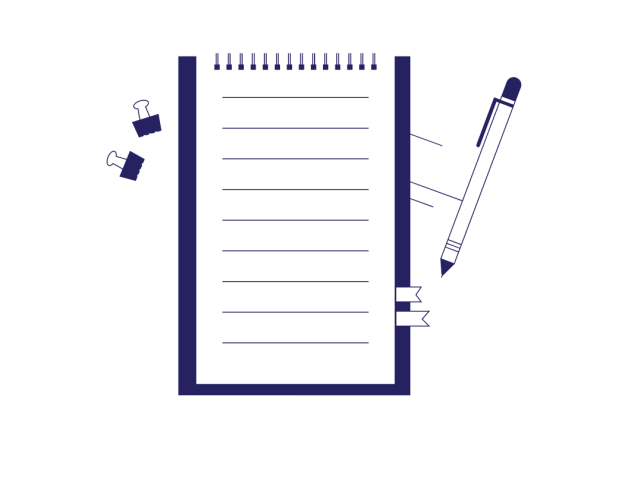
9-minute read
- 1st August 2023
So, you’ve been assigned your first college essay. You need to write at least a thousand words but have one issue: you must include quality sources, which will go in the reference list. Your professor has only told you, “Utilize academic databases and scholarly journals.”
Okay, so how exactly do you find credible sources for your essay ? Well, we’ll guide you through that in today’s post. We’ll explore finding quality sources and why you need them. By the time you finish reading, you’ll be ready to find sources for your essay.
Why Do I Need Sources?
You likely learned the importance of sources in high school. You need them to show that you are well-read on your chosen topic. You can’t ignore the importance of conducting academic research , as it will be part of your daily college grind.
Submitting an essay without sources would be like serving a hamburger with just the bun and beef patty. Think of sources as toppings on a burger. An essay lacking sources will undermine your credibility, leaving your professor wondering, “How do you know that?”
You also need to include citations to support your claims, which come from the sources you choose.
Finding Sources
Finding sources will depend on whether you want primary or secondary sources . Primary sources provide first-hand facts about your topic. For example, if your topic is related to literature, you would seek novels or poems as your primary sources. Secondary sources contain information from primary sources, such as journal articles.
Whether they’re primary or secondary sources, here are our suggestions for finding them.
1. Consult the Textbook
Your course textbook is a great starting point, as it will likely contain valuable and relevant information about your topic. Many students believe the textbook won’t be accepted as a source for an essay, but this is false. Your professor will welcome citations from the textbook.
2. Head to Your School’s Library
No, we’re not suggesting heading to the library’s on-site Starbucks, hoping for source-searching inspiration as you sip that frothy latte! Your school’s library contains numerous print sources, such as books, magazines, and newspapers. College libraries also subscribe to databases containing journal articles.
Journal articles are highly valued in academic research; every professor will expect at least a few of them in a reference list. Journal articles, or academic journals, are the most current sources in academia written by renowned scholars in the chosen field of study. Additionally, journal articles contribute to the field, summarize the current situation of it, and add new insight to the theory. They are also credible, as field experts review them before publication.
You don’t have to leave your dorm and head to the library. You can access various sources from your school’s library database online. Here’s an example of a student accessing the University of South Florida’s library database from their favorite coffee shop.
Navigating your library’s database can seem daunting; however, the library staff will be more than happy to help you, so don’t be afraid to seek help.
Finally, your institution’s library uses an inter-library loan system, allowing students to request out-of-stock print or online sources. If the library doesn’t have a specific item you need, there’s a good chance they can get it from another library.
3. Research Databases
You can use online research databases to find journal articles, other scholarly sources, and specific books. Research databases, which feature various search functions, can help you find the most current and relevant sources.
These research databases are available through your school library, giving you access to popular subject-specific databases such as JSTOR, Project Muse, and PubMed. You can download and save relevant articles from such databases; however, you must be logged into your student account to access and download full-version articles.
Knowing the essay’s scope and relevant keywords is essential for an optimal experience with databases. Once you become familiar with databases, they’ll be your best friends when conducting academic research.
4. Google Scholar
If Google is your preferred poison, we suggest using Google Scholar . It’s Google’s academic search engine, which works like an ordinary Google search except that it finds relevant academic print and online sources. Take this example of a student using Google Scholar to search for sources related to cyberbullying in schools.
Google Scholar presents various journal articles for the student. You can refine your search to find articles that have been published within the last year. One distinguishing Google Scholar feature is its Cited by function that shows the number of times a source has been cited. This function can inform you about a source’s credibility and importance to your topic.
5. Boolean Operators
We suggest using Boolean operators if your essay topic contains multiple search terms. Boolean operators expand or narrow your search parameters when using research databases. They use AND , OR , and NOT to include or exclude keywords from your search, allowing students to connect various keywords to optimize their search results. Boolean operators can be tricky if you aren’t familiar with using AND, OR, and NOT in search parameters.
Let’s say you’re searching for an article on cyberbullying written by an author named Bales in 2003. You can use AND to find the title of the article using keywords.
This will tell the database that all three terms must be present in the search result.
You can use OR to connect two or more similar concepts and broaden your search. This means any search terms you input can appear in the search results.
You can use NOT to exclude words or terms from your search by typing the excluded word after OR.
The search result will include soccer and omit football . This can be very useful in this example, as football is the UK word for soccer. It also means American football in US English. Because the student only wants to find soccer results, excluding football will avoid pulling up results related to American football.
Boolean operators are helpful if you clearly understand the scope of the assignment and know relevant keywords.

Find this useful?
Subscribe to our newsletter and get writing tips from our editors straight to your inbox.
6. Additional Online Sources
Searching for general online sources is another way to go. You can find potential sources from websites and blogs. We suggest consulting popular news websites such as BBC News and the New York Times, as they often have current and relevant articles related to the topic.
We encourage you to err on the side of caution when using non-academic online sources. You need to ensure that online sources are credible . We recommend looking for sites with trusted domain extensions, such as . edu, .org , and .gov . URLs with .edu endings are educational resources, while .org endings are resources from organizations. Endings with .gov are government-related resources.
It’s also a good idea to look for sources that contain a Digital Object Finder ( DOI ). A DOI is a permanent string attached to online journal articles and books, making it simple to retrieve them. Articles with DOIs indicate that they have been published in peer-reviewed articles.
How Many Sources Should I Have?
The essay rubric will probably specify the number of sources required. However, this is not always the case, so you need to use some judgment. The basic rule is to gather sources until you have enough information to support your claims. If you’re writing an essay of 2,000 words, you should have at least six sources. Remember that your professor expects variety. Try this approach:
– One book (if possible)
– Two to three journal articles
– One additional online source (preferably with a trusted domain extension)
Depending on the field of study, you may find that most of your sources come from journal articles.
Here’s a recap of finding quality sources for your essay:
● Professors want you to find a variety of sources (print and online)
● Your school’s library has access to thousands of highly-valued journal articles from its database
● Have a solid understanding of the topic and relevant keywords when using Boolean operators to narrow your search results
● Evaluate the credibility of additional online sources
● Look for websites with trusted domain extensions
● As a rule, use at least six sources for an essay of 2,000 words
By following our suggestions, you can get your search off to a flying start. We also recommend keeping track of your sources as you conduct your research. This will make it easier to correctly format citations from your sources.
Finally, we urge you to search for sources right after your professor assigns the essay. Waiting until a few days before the essay is due to start searching is a bad idea.
1. What Types of Sources Are Recommended?
We recommend credible websites, books, journal articles, and newspapers.
2. How Do I Know if a Source Is Credible?
A source is credible if:
● The author is an expert in the field or is a well-respected publisher (New York Times)
● It contains citations for sources used
● The website has a trusted domain extension
● It has current information on your topic
3. How Can I Get the Most Out of Research Databases?
Brainstorm specific keywords related to your topic. This will help you efficiently use Boolean operators. You should also have a clear understanding of the scope of your essay. Finally, use databases that are related to your topic. For instance, if your topic is literature then JSTOR is a good option.
4. Is Writing the Reference List Difficult?
This will depend on the required referencing style, such as APA, MLA, and Chicago. Remember to list the sources alphabetically in the reference list.
Once you’ve written the list, we recommend proofreading it. Your professor will be checking that your reference list meets the referencing style guidelines. A second pair of eyes always helps, so we recommend asking our proofreading experts to review your list . They can check that your sources are listed alphabetically. Additionally, our proofreaders will check that your list meets referencing style guidelines. Our proofreaders are pros with popular referencing styles such as MLA and APA. Consider submitting a 500-word document for free!
Share this article:
Post A New Comment
Got content that needs a quick turnaround? Let us polish your work. Explore our editorial business services.
How to use infographics to boost your presentation.
Is your content getting noticed? Capturing and maintaining an audience’s attention is a challenge when...
8-minute read
Why Interactive PDFs Are Better for Engagement
Are you looking to enhance engagement and captivate your audience through your professional documents? Interactive...
7-minute read
Seven Key Strategies for Voice Search Optimization
Voice search optimization is rapidly shaping the digital landscape, requiring content professionals to adapt their...
4-minute read
Five Creative Ways to Showcase Your Digital Portfolio
Are you a creative freelancer looking to make a lasting impression on potential clients or...
How to Ace Slack Messaging for Contractors and Freelancers
Effective professional communication is an important skill for contractors and freelancers navigating remote work environments....
3-minute read
How to Insert a Text Box in a Google Doc
Google Docs is a powerful collaborative tool, and mastering its features can significantly enhance your...

Make sure your writing is the best it can be with our expert English proofreading and editing.
Free Essay and Paper Checker
Try our other writing services

Correct your entire essay within 5 minutes
- Proofread on 100+ language issues
- Specialized in academic texts
- Corrections directly in your essay
Correct your entire essay in 5 minutes
Why this is the best free essay checker.
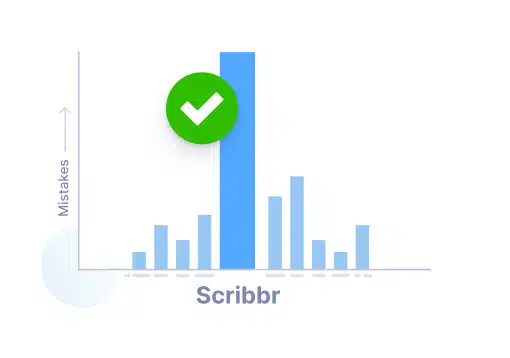
Tested most accurate
In the test for the best grammar checker , Scribbr found 19 out of 20 errors.

No signup needed
You don’t have to register or sign up. Insert your text and get started right away.
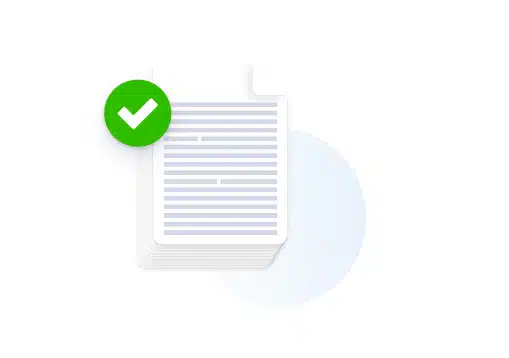
Long texts, short texts it doesn’t matter – there’s no character or word limit.

Don’t wait for ads or distractions. The essay checker is ad-free!

Nobody's perfect all the time—and now, you don’t have to be!
There are times when you just want to write without worrying about every grammar or spelling convention. The online proofreader immediately finds all of your errors. This allows you to concentrate on the bigger picture. You’ll be 100% confident that your writing won’t affect your grade.
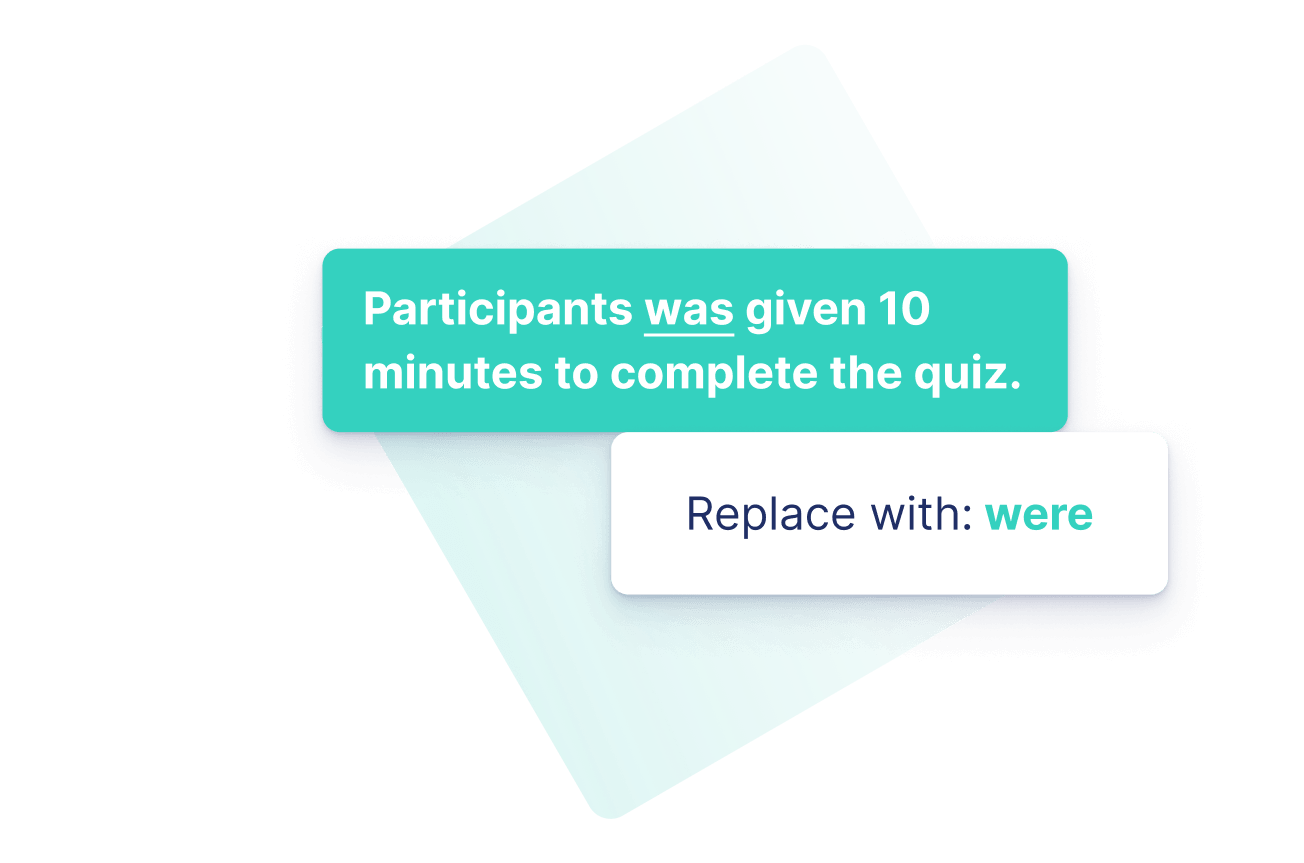
Correcting your grammar
The Scribbr essay checker fixes grammar mistakes like:
- Sentence fragments & run-on sentences
- Subject-verb agreement errors
- Issues with parallelism
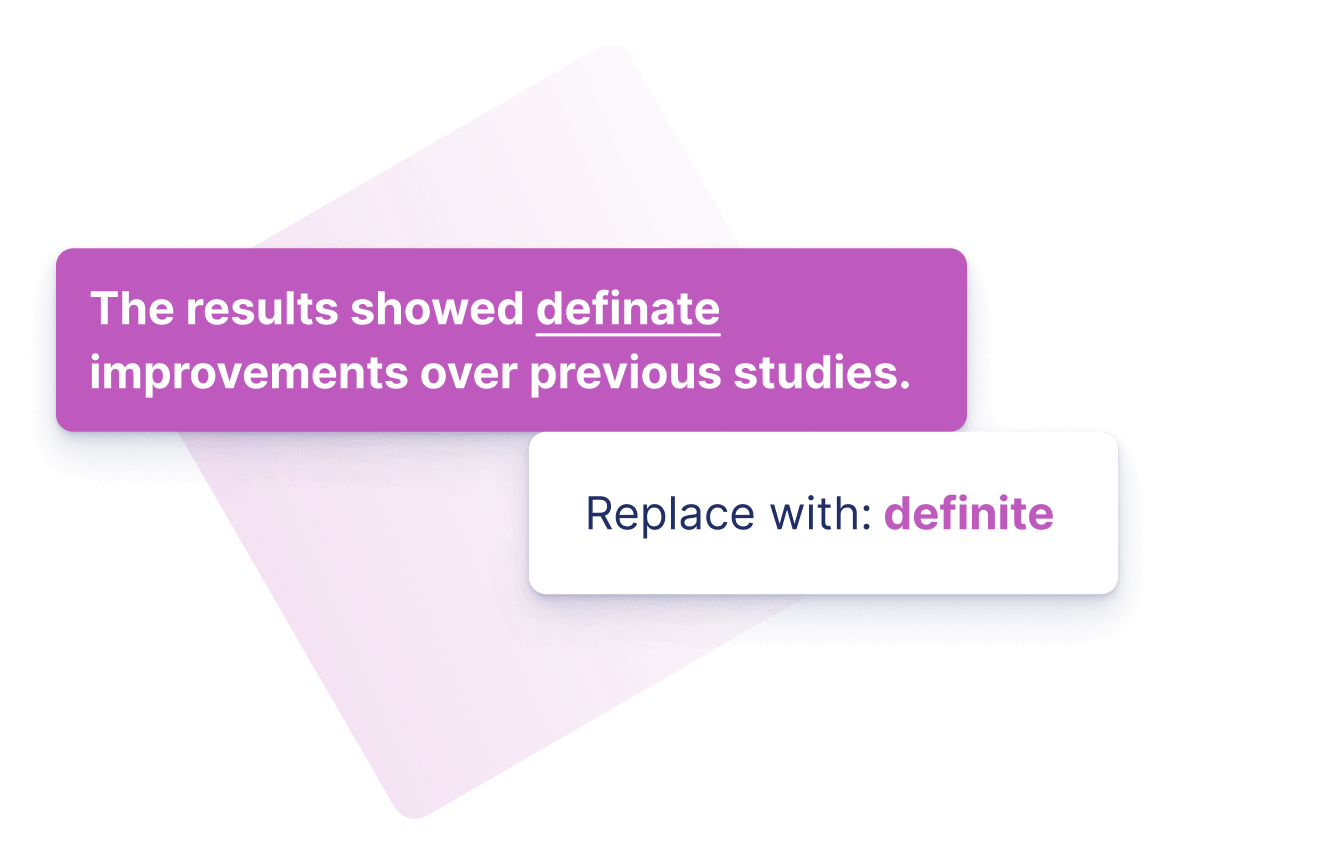
Spelling & Typos
Basic spell-checks often miss academic terms in writing and mark them as errors. Scribbr has a large dictionary of recognized (academic) words, so you can feel confident every word is 100% correct.
Punctuation errors
The essay checker takes away all your punctuation worries. Avoid common mistakes with:
- Dashes and hyphens
- Apostrophes
- Parentheses
- Question marks
- Colons and semicolons
- Quotation marks

Avoid word choice errors
Should you use “affect” or “effect” ? Is it “then” or “than” ? Did you mean “there,” “their,” or “they’re” ?
Never worry about embarrassing word choice errors again. Our grammar checker will spot and correct any errors with commonly confused words .

Improve your text with one click
The Scribbr Grammar Checker allows you to accept all suggestions in your document with a single click.
Give it a try!
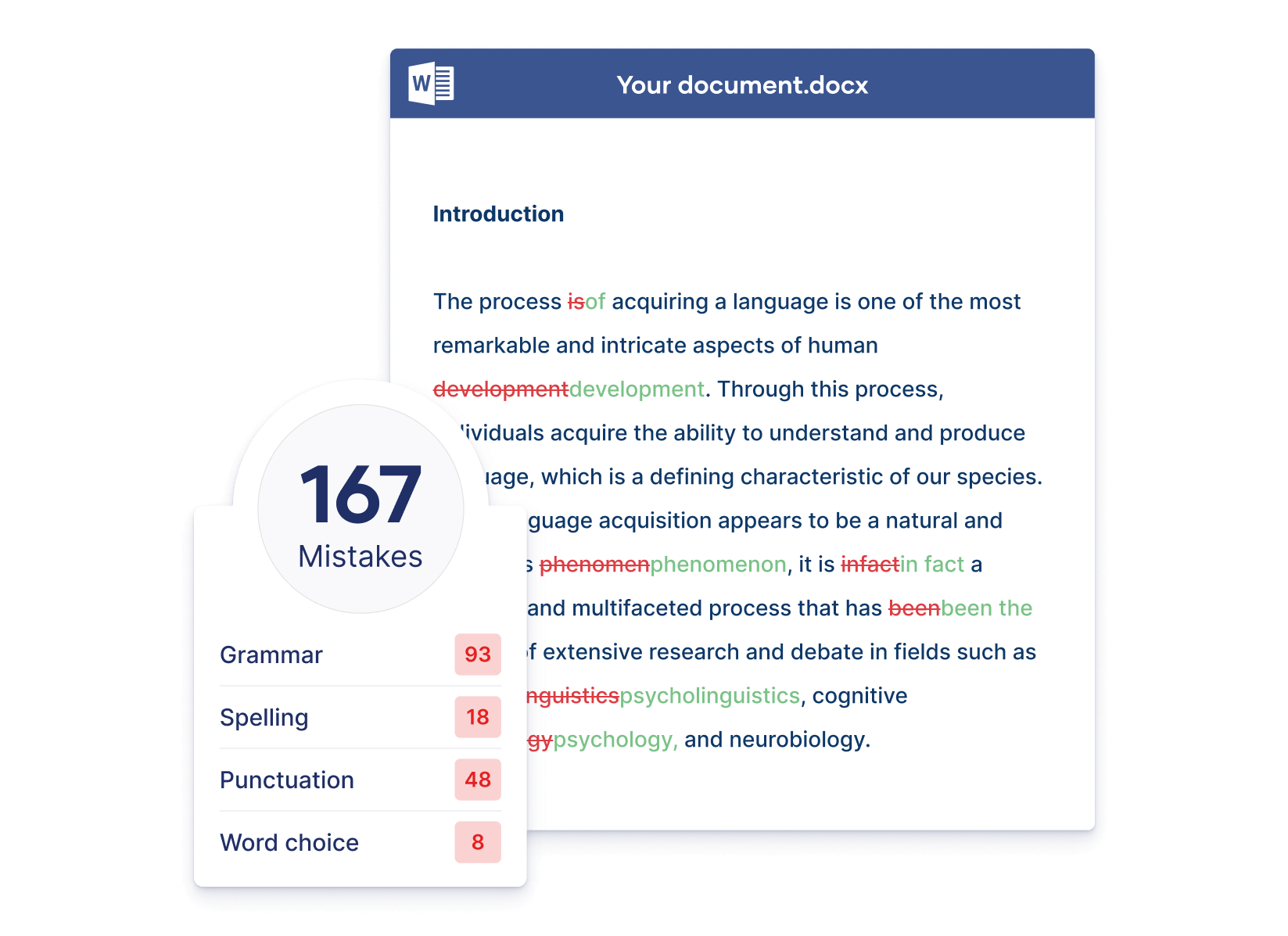
Correct your entire document in 5 minutes
Would you like to upload your entire essay and check it for 100+ academic language issues? Then Scribbr’s AI-powered proofreading is perfect for you.
With the AI Proofreader, you can correct your text in no time:
- Upload document
- Wait briefly while all errors are corrected directly in your document
- Correct errors with one click
Proofread my document

A Grammar Checker for all English variants
There are important differences between the versions of English used in different parts of the world, including UK and US English . Our essay checker supports a variety of major English dialects:
- Canadian English
- Australian English
Why users love our Essay Checker
| 🌐 English | US, UK, CA, & AU |
|---|---|
| 🏆 Quality | Outperforms competition |
| ✍️ Improves | Grammar, spelling, & punctuation |
| ⭐️ Rating | based on 13,246 reviews |
Save time and upload your entire essay to fix it in minutes
Scribbr & academic integrity.
Scribbr is committed to protecting academic integrity. Our plagiarism checker , AI Detector , Citation Generator , proofreading services , paraphrasing tool , grammar checker , summarizer , and free Knowledge Base content are designed to help students produce quality academic papers.
We make every effort to prevent our software from being used for fraudulent or manipulative purposes.
Ask our team
Want to contact us directly? No problem. We are always here for you.
- Email [email protected]
- Start live chat
- Call +1 (510) 822-8066
- WhatsApp +31 20 261 6040

Frequently asked questions
Our Essay Checker can detect most grammar, spelling, and punctuation mistakes. That said, we can’t guarantee 100% accuracy.
Absolutely! The Essay Checker is particularly useful for non-native English speakers, as it can detect mistakes that may have gone unnoticed.
The exact time depends on the length of your document, but, in most cases it doesn’t take more than a minute.
- Skip to main content
- Skip to secondary menu
- Skip to primary sidebar
- Skip to footer
Study Today
Largest Compilation of Structured Essays and Exams
Essay on Quality
April 17, 2018 by Manasi Shewale Leave a Comment
Table of Contents
What is Quality?
The literal meaning of quality means “the degree of excellence”. It simply means that whenever we compare any 2 things for examples, when we go to buy something, we always compare those things. Whichever object we think is better than the other, we go ahead and buy it.
So, the degree of measurement when two similar things are compared is called as the quality of that object. For example, a wooden table will obviously be better than a plastic table because wood is more durable than plastic and would not break as easily as a plastic table might. Therefore, this makes the quality of a wooden table better than that of the plastic table.
This was the meaning of quality in simple terms but in our daily life quality and quality assessment is done for the simplest as well as for the most complex object also. We find quality everywhere that is, in food, clothes, accessories, while buying property, etc.
In fact, nowadays even a human being and his skills are measured in terms of quality skills or if that person can contribute qualitatively to any company he would be working for. That’s the importance of quality and it should be after all we would not be living a satisfactory life without having quality in it.
Is Quality Assurance Necessary?
Quality assurance is no doubt necessary as a qualitative product is always a desired result of the entire manufacturing procedure. Therefore, the output of any such tedious process should have a certain well-defined quality.
There is a standard set up by International Organization for Standardization which is non-governmental organization with more than 162 nations as members. This organization does the work of setting up the quality standards of each and every product.
This is basically done to help a customer identify a quality product and choose this product over a non-quality product. There is an Indian organization also which is named as the Bureau of Indian Standards which also does the similar work like ISO to give a quality mark to a certain product. This ark is known as the ISI mark.
In the Business sector, quality plays a very important or rather a very crucial role. There are often 2 or more companies manufacturing the same stuff. Let’s fore example, take an ice cream. There are so many different companies which produce and supply ice cream.
But still we eat or rather prefer to eat the ice cream manufactured by a specific company. Here, we decide the quality of an ice cream on the basis of its taste. We would try and taste different ice creams produced by different companies and ultimately select the one which tastes better to us.
This is how it works in most of the sectors for business. Customers will always compare and choose the product which they like or which they think has a better quality than other company’s products.
Therefore, it can be said that different manufacturing companies always have some competition to make better quality products than the rival company. This in turn gives a better quality product to the customer.
There are many sectors where quality assurance is important. Another such sector is the chemical or pharmaceutical laboratory. Here, quality of the chemicals being used as well ass the glassware to measure and handle the chemicals should all have a standard quality.
According to the BIS and the ISO, there are different standards set up to handle and work on a chemical in the laboratory which requires a different set of environments as well as experience to work with the hazardous chemicals.
For example, the glassware and other measuring flasks of a laboratory are all tested for their quality. Now here, by quality it means that a measuring flask of 10 ml is cross checked to confirm that it will hold only 10 ml of any given liquid.
Therefore, a flask holding 9.9 ml or even 10.1 ml of the liquid will be declared as a non-quality product and therefore, will be discarded. This is done because in a laboratory it is very essential to measure the proper amount of these hazardous liquids as even a drop more than the required quantity can lead to a disaster.
Such is the importance of quality in the chemical laboratories and the respected manufacturing companies. Quality assurance is also done in banking and other financial institutes.
We must have heard the word Audit being mostly done by an external officer who will come to the company and cross-check your files and work and on that basis will give the company a grade or a rank.
This rank decides whether the work they are doing or their strategy is qualitative or not. This mark also decides whether they are following all the rules mentioned in the Guidelines for Ethical Work Proceedings.
The Audit is nowadays done in almost all companies, banks and small-scale manufacturing companies where it is tested if they are following all the legally mentioned procedures of manufacturing and processing and also to rank them on the basis of the quality of their work.
Nowadays due to excessive competition and increasing population, there is a high demand for skilled and knowledgeable employees.
About Manasi Shewale
Manasi Shewale loves to read novels and review them inturn. She is an avid reader of various topics of scientific interest in Chemistry and Biology.
Reader Interactions
Leave a reply cancel reply.
Your email address will not be published. Required fields are marked *
Top Trending Essays in March 2021
- Essay on Pollution
- Essay on my School
- Summer Season
- My favourite teacher
- World heritage day quotes
- my family speech
- importance of trees essay
- autobiography of a pen
- honesty is the best policy essay
- essay on building a great india
- my favourite book essay
- essay on caa
- my favourite player
- autobiography of a river
- farewell speech for class 10 by class 9
- essay my favourite teacher 200 words
- internet influence on kids essay
- my favourite cartoon character
Brilliantly
Content & links.
Verified by Sur.ly
Essay for Students
- Essay for Class 1 to 5 Students
Scholarships for Students
- Class 1 Students Scholarship
- Class 2 Students Scholarship
- Class 3 Students Scholarship
- Class 4 Students Scholarship
- Class 5 students Scholarship
- Class 6 Students Scholarship
- Class 7 students Scholarship
- Class 8 Students Scholarship
- Class 9 Students Scholarship
- Class 10 Students Scholarship
- Class 11 Students Scholarship
- Class 12 Students Scholarship
STAY CONNECTED
- About Study Today
- Privacy Policy
- Terms & Conditions
Scholarships
- Apj Abdul Kalam Scholarship
- Ashirwad Scholarship
- Bihar Scholarship
- Canara Bank Scholarship
- Colgate Scholarship
- Dr Ambedkar Scholarship
- E District Scholarship
- Epass Karnataka Scholarship
- Fair And Lovely Scholarship
- Floridas John Mckay Scholarship
- Inspire Scholarship
- Jio Scholarship
- Karnataka Minority Scholarship
- Lic Scholarship
- Maulana Azad Scholarship
- Medhavi Scholarship
- Minority Scholarship
- Moma Scholarship
- Mp Scholarship
- Muslim Minority Scholarship
- Nsp Scholarship
- Oasis Scholarship
- Obc Scholarship
- Odisha Scholarship
- Pfms Scholarship
- Post Matric Scholarship
- Pre Matric Scholarship
- Prerana Scholarship
- Prime Minister Scholarship
- Rajasthan Scholarship
- Santoor Scholarship
- Sitaram Jindal Scholarship
- Ssp Scholarship
- Swami Vivekananda Scholarship
- Ts Epass Scholarship
- Up Scholarship
- Vidhyasaarathi Scholarship
- Wbmdfc Scholarship
- West Bengal Minority Scholarship
- Click Here Now!!
Mobile Number
Have you Burn Crackers this Diwali ? Yes No
Home — Essay Samples — Life — Integrity — 500-Word on Integrity
500-word on Integrity
- Categories: Integrity Morality
About this sample

Words: 510 |
Published: Jun 24, 2024
Words: 510 | Page: 1 | 3 min read

Cite this Essay
Let us write you an essay from scratch
- 450+ experts on 30 subjects ready to help
- Custom essay delivered in as few as 3 hours
Get high-quality help

Prof Ernest (PhD)
Verified writer
- Expert in: Life Psychology

+ 120 experts online
By clicking “Check Writers’ Offers”, you agree to our terms of service and privacy policy . We’ll occasionally send you promo and account related email
No need to pay just yet!
Related Essays
2 pages / 878 words
1 pages / 460 words
5 pages / 2191 words
2 pages / 728 words
Remember! This is just a sample.
You can get your custom paper by one of our expert writers.
121 writers online
Still can’t find what you need?
Browse our vast selection of original essay samples, each expertly formatted and styled
Related Essays on Integrity
Erik Erikson's theory of psychosocial development is a cornerstone of developmental psychology, offering a comprehensive framework for understanding human growth across the lifespan. One of the most profound stages in this [...]
This essay will aim to demonstrate an understanding of the importance of ethics and integrity in academic work. It will propose to firstly define, in its simplest form, ethics and integrity and basic morals, supported by the [...]
Integrity is the cornerstone of ethical behavior, and at the heart of integrity lies the commitment to be honest and trustworthy. This essay explores the profound significance of these virtues in personal and professional [...]
In an increasingly complex and interconnected world, the virtues of honesty and integrity have taken on heightened significance. These principles are not merely abstract ideals; they are the bedrock upon which trust, [...]
Gabriel-Petit, P. (2017). 13 human qualities you must have to succeed in work and life. Smashing Magazine. doi:10.5465/amr.1995.9508080335
Integrity can be defined as soundness of character which involves inculcating moral and ethical principles as well as upholding honesty (Cox, 2015). Apart from job competencies and expertise, every manager ought to possess [...]
Related Topics
By clicking “Send”, you agree to our Terms of service and Privacy statement . We will occasionally send you account related emails.
Where do you want us to send this sample?
By clicking “Continue”, you agree to our terms of service and privacy policy.
Be careful. This essay is not unique
This essay was donated by a student and is likely to have been used and submitted before
Download this Sample
Free samples may contain mistakes and not unique parts
Sorry, we could not paraphrase this essay. Our professional writers can rewrite it and get you a unique paper.
Please check your inbox.
We can write you a custom essay that will follow your exact instructions and meet the deadlines. Let's fix your grades together!
Get Your Personalized Essay in 3 Hours or Less!
We use cookies to personalyze your web-site experience. By continuing we’ll assume you board with our cookie policy .
- Instructions Followed To The Letter
- Deadlines Met At Every Stage
- Unique And Plagiarism Free
The Captable
Social Story
Enterprise Story
The Decrypting Story
Daily Newsletter
By providing your information, you agree to our Terms of Use and our Privacy Policy. We use vendors that may also process your information to help provide our services. This site is protected by reCAPTCHA Enterprise and the Google Privacy Policy and Terms of Service apply.
Founder first
Announcement
Startup Sectors
Women in tech
Entertainment
Art & Culture
Travel & Leisure
Curtain Raiser
Wine and Food
Design and sustainability: this furniture brand promotes creative thinking about quality and environment
In our second photo-essay from picturesque jodhpur, we share more creative highlights from furniture brands basant and orange tree..
Sunday June 23, 2024 , 5 min Read
Launched in 2014, PhotoSparks is a weekly feature from YourStory, with photographs that celebrate the spirit of creativity and innovation. In the earlier 780 posts, we featured an art festival, cartoon gallery. world music festival , telecom expo , millets fair, climate change expo, wildlife conference, startup festival, Diwali rangoli, and jazz festival.
Jodhpur-based brands Basant and Orange Tree span a wide range of B2B and B2C furniture, lighting and home décor solutions. The domestic retail arm, Orange Tree, was launched by Gaurav Jain in 2014 (see Part I of our photo essay here ).

As shown in our two-part photo essay, furniture is not just about wood, but can also include ropes, glass, metal, and other materials. This requires a mastery of design techniques and material integration, along with a mindset of experimentation.
The Basant design team shows that creators need to meet current customer expectations and aspirations while also delighting them with new creative surprises.
“Meeting local and global customer needs requires a masterful blend of traditional crafts and modern design,” Jain tells YourStory .
The company describes its offerings as global products with Indian elements, that can blend into any home or office around the world.
“The entry of global furniture and interior brands in India gives more choice to customers and spurs local brands to do even better,” he asserts.

Jain’s team has launched a competition on regenerative design this year, open to students and professionals. Students are being invited to participate from a range of design schools such as NIFT Jodhpur, Footwear Design and Development Institute, IIT Jodhpur, Indian Institute of Crafts and Design, and MICA Jaipur.
Sustainability and regenerative design help meet the challenges of climate change. They also align with the desires of a new wave of environmentally-conscious buyers, Jain affirms.
“Companies should become more proactive – they need to go beyond existing compliance requirements and introduce additional safety and environmental provisions on their own,” he suggests.

Sustainability has always been a part of Indian culture. “Sometimes we don’t throw away mango skins – even that can be used for making different kinds of drinks and food products,” he observes.
But sustainability needs to be brought back for industrial scale, and in the face of increasingly wasteful consumer culture and urban pollution. States like Rajasthan have so much sun throughout the year – this also should be tapped more for solar energy, Jain suggests.
“Sustainability is more than good press. It should be a way of life, the foundation of a brand,” he affirms. This includes the use of recycled materials in the design of new products.

“Design is about environmental impact, not just the look and feel of a product,” he says. The whole ecosystem needs to be involved in such an approach, right from landfill reduction to carbon tracking.
Basant is encouraging design students to visit the factory and suggest ways of reducing waste or incorporating discarded waste into new kinds of products. Such practices educate young minds while also passing on the reduced cost to customers.
“In earlier days, we used to carry our own bags for shopping and our own water bottles during train travel, but now there are too many discarded plastic bottles. I still carry my own water bottle today,” he remarks.

“Quality, safety and sustainability need to become movements, not just buzzwords or temporary fads,” he affirms.
Ethical considerations are also important. “We do not use animal leather in our products. We are looking at adding vegan leather now,” he says.
Indian youth love quizzes and competitions, Jain observes. “So our regenerative design competition is designed to spark creative ideas in the spirit of competition and collaboration,” he says.

This will also create and grow communities around regenerative design. The Indian education system needs to go beyond exam scores and encourage more creativity, he suggests.
“There is so much focus only on toppers. But we should also celebrate all those who succeeded later in life without being toppers,” he affirms.
“Yes, 95% marks may be good, but that doesn’t mean 55% scores in school are not good,” Jain says.

There are many creative and sporting skills that are not adequately assessed in the education system. “That is why we engage with many designers right at the student stage to see how well they can pick up skills in the industry and become creative,” he explains.
Basant is entirely privately held, and is not looking to raise funds at the moment. The company has incorporated a range of new technologies and tools in its operation.
“AI also has vast potential to revolutionise content creation and design. But designers and manufacturers should not ignore the human touch,” Jain observes.

As trends in the Indian furniture sector, he points to the growing prosperity of Indian consumers. “Global furniture brands are talking of India as a market, not just as a sourcing hub for materials,” he observes.
Jain also offers tips for aspiring entrepreneurs and designers. ““You have to find your own USP. Find your unique strength and keep working on it day and night, you will get better,” he advises.
“Expose yourself to best practices in various fields, learn from them, and adapt them to your own work. Good design should satisfy you as well as your customer,” he adds.
It can help to be good at many things, but it is important to find a specialisation. “Find your zone. Create your signature style,” Jain signs off.
Now what have you done today to pause in your busy schedule and harness your creative side for a better world?

(All photographs were taken by Madanmohan Rao on location in Jodhpur.)
- photosparks
- Gaurav Jain
- sustainability
- photography
MOST VIEWED STORIES

Startup news and updates: Daily roundup (June 24, 2024)

Meet the winners of YourStory India’s CTO Excellence Awards 2024

Win $10K in Siggi's Digital Detox Challenge: Ditch Your Phone for a Month

Windows 10 support ends in October 2025. What does that mean for your business?

Ukraine needs to stop fighting the war Russia wants
- Ukraine is trapped in a strategy that favors Russia, a Ukrainian security expert argues.
- Without a grand strategy for victory, the most that Ukraine can do is try to hold on.
- "The lack of a strategy for victory will turn this war into a war of attrition," Oleksandr Danylyuk told BI.

Ukraine is caught in a strategic trap. It barely has the strength to keep Russia from making major advances, yet it is not strong enough to eject Russian forces from the territory it held prior to the 2022 invasion. The result is a war of attrition that Ukraine can't win.
The solution? Build up Ukrainian military power and compel Russia to agree to peace, argues a Ukrainian security expert. But that can't happen unless Ukraine devises a grand strategy that extends beyond mere survival that's characterized much of the war in 2024 as Russia exploited the long delay of US arms support.
"The lack of a strategy for victory will turn this war into a war of attrition for Ukraine, which completely coincides with Russian interests," Oleksandr Danylyuk told Business Insider.
Danylyuk dismisses the notion that even with Western aid, Ukraine can match Russia in the sheer numbers of military power like tanks, artillery and troops. "Trying to win a war with Russia at the expense of only a symmetrical mass increase is a flawed strategy, given that Russia has a larger number of [military-age] human reserves (about 30 million people in Russia, compared to about 8 million people in Ukraine), significant stockpiles of weapons and military equipment inherited from the USSR or built by 2022, as well as a developed defense-industrial complex and a powerful mining industry that satisfies its needs for a significant amount of strategic materials," he wrote in an essay for the Royal United Services Institute, a British think tank.
That leaves improving the quality of Ukraine's military. But this involves more than better weapons and tactics. Danylyuk argues that political mobilization is just as important, a view that seems reminiscent of the 19th Century German military philosopher Carl von Clausewitz, who envisioned a nation's war effort as a trinity comprised of the people, government and military.
"The political effectiveness of a military organization consists of its ability to receive financial support, the provision of weapons and military equipment, and the replenishment of human forces in the volume and quality necessary to eliminate existing threats," Danylyuk wrote. However, "the political effectiveness of the [Armed Forces of Ukraine] remains insufficient, as Ukraine's defense needs are currently only partially met."
Danylyuk blames Western restrictions on the types of weapons being supplied, and how they can be used. The US and Europe have long imposed restraints on using long-range weapons, such as ATACMS long-range guided rockets , to hit targets deep inside Russia. Only recently has the Biden administration begun to relax that policy . Easy victories with Western weapons have failed to materialize as the war has dug in. It's also clear that even with robust EU and US support, Ukraine is still at a disadvantage against the Russian war machine in a years-long fight.
Related stories
Danylyuk also worries that political divergences between Ukraine and its allies are undermining Ukrainian military effectiveness. Ukraine's current government wants to liberate all occupied territory, which is "undeniably fair and rational, but it ignores the fact that the liberation of territory does not necessarily mean the end of the war," he wrote. On the other hand, US and European desires for a negotiated settlement "will be viewed by Russia as a tactical respite which can be used to restore and build capabilities and plan a new phase of aggression."
In other words, Russia could exploit a peace deal to rebuild its battered forces before launching another invasion of Ukrainian lands.
The result is that the Ukrainian military isn't sure what kind of war to prepare for. "The AFU are in an extremely difficult situation, as the political leaderships of both Ukraine and its partner countries see these goals in different ways, which negatively affects the ability of the AFU to develop and implement a military strategy aimed at achieving them," wrote Danylyuk.
Without a grand strategy for victory, the most that Ukraine can do is hold its own, Danylyuk told Business Insider. "The planning of individual operations, the assessment and provision of the needs of the AFU, the development of training programs and preparation, and the introduction of new tactical techniques can at best support Ukraine's ability to conduct the war, but not to win it."
There are too many competing visions of Ukrainian victory, he argues. These include retaking all lost Ukrainian territory, threatening Russia's hold on Crimea to force it into negotiations, punishing Russian industry and exports to try to force Russians to reconsider the war's costs, or exacting such a heavy toll that Russian leaders are compelled to withdraw similar to the Soviet pullout from Afghanistan.
Danylyuk does fault Ukraine for some military mistakes, such as failure to adequately prepare and train for the failed counteroffensive against well-entrenched Russian forces in summer 2023. But he considers tactical improvements to be at the bottom of Ukraine's to-do list.
The West can boost Ukrainian military power by focusing on weapons that have already proven devastating against Russian vulnerabilities, according to Danylyuk. This includes cheap naval drones that have sunk numerous Russian warships and driven Russia's Black Sea Fleet from the Ukrainian coast, as well as giving Ukraine more Western aircraft and air-to-air missiles to contest Russian airpower.
Interestingly, Danylyuk blames the West for failing to adapt its equipment to the lessons of the Ukraine war. "This concerns, first of all, their ability to quickly improve military equipment not only because Ukraine needs it, but also because the security of the partners themselves depends on its improvement. The current pace of this improvement is completely unsatisfactory, and the approaches to identifying and eliminating the shortcomings of such systems require a complete revision."
Danylyuk's analysis does leave some questions unanswered. For example, as the Germans discovered on the Eastern Front in World War II, quality doesn't always triumph over quantity. And as Ukraine's failed 2023 counteroffensive demonstrated, achieving decisive battlefield success is no easy matter . With Russian society mobilized for total war, and with Moscow able to procure resources from allies such as China, North Korea and Iran, Russia's ability to wage a long war is considerable.
Also, choosing a grand strategy is easier said than done. For example, the Ukrainian government vows to liberate all occupied territory, including the Crimean peninsula and eastern Ukraine which Russia has annexed. Some critics say this is unrealistic, and Ukraine will have to accept some loss of territory.
Whatever strategy Kyiv chooses, Danylyuk argues, it can't be the status quo.
Michael Peck is a defense writer whose work has appeared in Forbes, Defense News, Foreign Policy magazine, and other publications. He holds an MA in political science from Rutgers Univ. Follow him on Twitter and LinkedIn .
Watch: What's next for the war in Ukraine?
- Main content

IMAGES
VIDEO
COMMENTS
1. The introduction. This is the paragraph where you open your essay, pull in the reader, and share your thesis statement. A thesis statement is one sentence that tells the reader your main idea and makes a claim. The rest of your essay follows up on this claim and supports your idea. 2.
Quality Control Quality control (QC) is a set of procedures to ensure that a manufactured product adheres to the requirements of the client or customer. Inspectors collect data which is analysed for defective units which must be repaired or rejected and poor service repeated at no charge until the customer is satisfied.
The concept of quality has existed for many years, though its meaning has changed and evolved over time. In the early twentieth century, quality management meant inspecting products to ensure that they met specifications. In the 1940s, during World War II, quality became more statistical in nature.
When you write an essay for a course you are taking, you are being asked not only to create a product (the essay) but, more importantly, to go through a process of thinking more deeply about a question or problem related to the course. By writing about a source or collection of sources, you will have the chance to wrestle with some of the
Case Study. The article by Hoyer and Hoyer explores the essence of quality focusing on the eight prominent gurus' views. Pointing out that quality assurance tools might vary with time, authors emphasize that it aims at performance excellence. First, the authors reflect Crosby's definition that refers to the accordance of all the measured ...
Credibility or believability: Nothing says bad writing like getting the facts wrong or misrepresenting oneself. In fiction, the story must be believable (even if it's impossible), and in nonfiction, accurate research can make or break a writer. Thought-provoking or emotionally inspiring: Perhaps the most important quality of good writing is ...
These Are 5 Easy Steps To Write A Perfect Essay. Determine the title and research your audience. Brainstorm ideas and make an outline. Identify your thesis statement and organize your thoughts. Start the writing process (introduction, body paragraphs, and conclusion) Edit and proofread.
Quality begins with the person providing the service or who makes a quality product which enhances the "perceived value" for the consumer; who gains from the exchange. The employee makes the product, the consumer buys the product, ensuring a relationship with the company who provides the livelihood for the employee.
1. Understand the assignment details: The first step to writing a quality essay is comprehending the specifics of the assignment. The worst mistake you can make at this point is skimming over the details and writing a lengthy essay, only to discover that it does not adequately address all the key points of the assignment (I would know). 2.
But quality essay writing has other elements too, such as making sure your essay "flows", is free of grammar and spelling errors and has a tightly woven argument. Here are some tips on how you can improve your essay writing: Read a lot of essays. Reading essays other people have written is a great way to study essay writing.
Of course, your paper has to be good for this to work. For advice on improving the quality of your papers, check out my post on 6 Writing Tips to Make Your Papers 300% Better. 7. Draft and Edit Separately. Editing and drafting at the same time is, like all forms of multitasking, inefficient and ultimately impossible.
Summary. The "one idea" rule is a simple concept that can help you sharpen your writing, persuade others by presenting your argument in a clear, concise, and engaging way.
By critiquing key approaches to education quality, Sayed highlights what he calls the value-bases of any framework for education quality. Drawing on Bunting (1993) he declares that, „Quality in education does have a bottom line and that line is defined by the goals and values which underpin the essentially human activity of education.‟
An essay or paper should be organized logically, flow smoothly, and "stick" together. In other words, everything in the writing ... One additional quality, not part of this list, but nevertheless, very important, is . creativity. The best writing carries some of the personality and individuality of its author. Follow the above guidelines, but ...
Quality as fitness for a purpose can be defined as the ability to provide a satisfactory service, the ability to meet the customers' needs and expectations. Quality as a transformation. Quality as transformation is 'a classic notion' of quality that involves a 'qualitative change' from one state to another (Harvey, 2006).
1. Consult the Textbook. Your course textbook is a great starting point, as it will likely contain valuable and relevant information about your topic. Many students believe the textbook won't be accepted as a source for an essay, but this is false. Your professor will welcome citations from the textbook.
There is no formula or program for writing well. However, there are certain qualities that most examples of good writing share. The following is a brief description of five qualities of good writing: focus, development, unity, coherence, and correctness. The qualities described here are especially important for academic and expository writing.
An essay is a focused piece of writing that explains, argues, describes, or narrates. In high school, you may have to write many different types of essays to develop your writing skills. Academic essays at college level are usually argumentative: you develop a clear thesis about your topic and make a case for your position using evidence ...
Free Composition. The Ease. The Paradox. Meaningful Unity. Use of Simple Language. Authoritarianism. Use an Element of Surprise. The Logic of Presentation. Here are some basic points and qualities of good writing that will make your essay successful:
Scribbr is committed to protecting academic integrity. Our plagiarism checker, AI Detector, Citation Generator, proofreading services, paraphrasing tool, grammar checker, summarizer, and free Knowledge Base content are designed to help students produce quality academic papers. We make every effort to prevent our software from being used for ...
The literal meaning of quality means "the degree of excellence". It simply means that whenever we compare any 2 things for examples, when we go to buy something, we always compare those things. Whichever object we think is better than the other, we go ahead and buy it. So, the degree of measurement when two similar things are compared is ...
Share free summaries, lecture notes, exam prep and more!!
Goal 4 aims to ensure inclusive and equitable quality education and promote lifelong learning opportunities for all. This goal supports the reduction of disparities and inequities in education, both in terms of access and quality. It recognizes the need to provide quality education for all, and most especially vulnerable populations, including poor children, children living […]
It is a quality that is highly valued in individuals, organizations, and societies as a whole. In its simplest form, integrity is the quality of being honest and having strong moral principles. It is about doing the right thing, even when no one is watching, and standing up for what you believe in, even in the face of adversity.
"Quality, safety and sustainability need to become movements, not just buzzwords or temporary fads," he affirms. Ethical considerations are also important. "We do not use animal leather in ...
That leaves improving the quality of Ukraine's military. But this involves more than better weapons and tactics. Danylyuk argues that political mobilization is just as important, a view that seems ...